#as you face similar dilemmas - but in a completely different context!
Text
Salubrious Waterways
Archaic Blood Masterlist: TF141 x Vampire!GN!reader
-You come into contact with an old inanimate foe-

There wasn't a lot of things you needed to look out for as a vampire. Compared to your mortal life, burdened with age, slower healing, lesser abilities, a need for sustenance and sleep, it was a lot better now as a vampire. There were just a few deadly things you had to look out for now.
The sun is the typical answer but not the first on the list if you're ranking from most deadly. For longer periods of times under natural sunlight, you'll get nasty burns and itchy feelings on your skin until it starts peeling off. Quite grotesque to witness but even more reason for your extensive gear.
Higher on that list is your bloodlust, you've seen other vampire spawn succumb to their hunger. The way they turn from thinking beings into feral animals, losing the rest of their bodily autonomy to a drive that makes them kill for blood.
When a vampire spawn got to that point, not even a vampire master would be able to control them any longer.
There are smaller things too, your severe allergy to garlic, your adverse nature to anything of pure silver, most things considered holy are things you stay clear off. It's not the hardest thing to achieve, running from these things. Most of the time you can get away with it by putting it in boxes of allergies and preferences.
However, there is one that's a bit harder to avoid on a regular basis, but an incredibly important one nonetheless.
Natural clear running water.
Considered holy in many different contexts, and despite being more prevalent in your young years, it is still just as true now. You had done your best at avoiding rivers, lakes, and creeks, on occasion rainfall too, though you find it doesn't burn as much when you just let rain seep through your gear.
It wasn't often you were faced with this dilemma, where something so simple could put you out of commission for an entire mission.
You and the 141 had been out for two days now, quietly hunting a new lead on a local group of monsters causing disturbances. It had been a bunch of nothing so far, most of the time spend holed up in a rocky safehouse, and the rest of it spend scouting a supposed meeting place for activity.
Much to your dismay, the area was prone to rain and full of rivers, creeks, and ponds. Far from the ideal place to keep a vampire, holed up for hours on end. The only lead you had that whatever monster was around here wasn't like yourself. You had hoped for it all to go a little faster, that you could finish up your objective and get back home where it was dry and safe.
Unluckily there hadn't been anything to record, all the hours you spent holed up on the cliff with different members of the team was starting to wear you down.
Being the one with the most energy out of the bunch you stayed up there longer than any of them. They put in place a rotating system that had you stationed the longest, with the accompanying eyes of each of them depending on the hour.
You were used to long missions spent in one spot, quietly observing the movements of others, but you couldn't deny that you were getting bored. Ghost’s jokes could be entertaining for a little while, just as well Soap’s stories about all the supposed grand things he’s done helped the silence.
Price and Gaz tended to have a similar idea of questioning you about your past missions. Gaz out of general admiration for your work through decades, and Price to most likely build a profile on you.
You don’t take offence to it, despite your displeasure of speaking of your origin before the military, he was far from the first captain that took interest in you that way.
But even if you enjoyed their presence, you couldn’t deny you were staring at a bunch of rocks.
“What’s the longest you've ever had to remain still?”
You tear your eyes away from the formation of boulders, and glare at the person next to you. Ghost had been completely quiet for the last hour, the only sound coming from him except his breathing, was the occasional shift so his limbs didn’t go numb.
“You too? I thought I’d only be hearing it from Gaz and Cap tonight.”
You shift your eyes back to the formation down the cliffside, there was a little cave entrance, the supposed home to a monster that could lead you a step further to the bigger group. You had proposed going in there under the guise of a fellow monster seeking asylum, but Price had refused.
“Filling the silence” he mumbled, keeping his eyes glued on the entrance like a hawk.
You let out an acknowledging hum, watching the way his eyes flickered around but kept the same area under surveillance. "A year" you answer him after a long moment of consideration, "I got locked inside a very small room, couldn't even stand up."
You don't miss the quiet shock coming from him, nor the concerned stare he sends your way. You squirm a little, already feeling the regret clutching at your lungs. You very rarely ever talked about the worse things in your past, and practically never would you mention your old master.
There was a long silence before he spoke up again, "Didn't you get hungry?"
"I fed on stale rats that did the unfortunate thing and came by."
You rested your chin against your arm, focusing on anything but him. You knew how people reacted to those parts, the disgusting things you'd have to do to survive and the pain you'd have to endure. You couldn't use their pity for anything.
Though much to your surprise he didn't give you the typical speech of pity and sorrow. He didn't say much of anything to it except that it sounded rough for you. You appreciated that he didn't dig, but it only made you curious as the horrors he might've seen to not be more shocked at your revelation.
"Ghost, sitrep" Price's voice crackled through the radio strapped to each of your chests. You felt your mind spark with worry for a minute, had he heard? Had he listened into the radios this entire time.
You were relieved to find that whether he had heard or not, he didn't mention it. Ghost updated him on the situation, how nothing had changed since the last time he checked in. It did make you wonder on the purpose of his checking; it wasn't due for a couple hours.
"Copy, you two come back, we're moving out, Gaz spotted the werewolf."
The werewolf had only briefly been spotted, but it was all you needed to know to be able to track it further into the woods. You were happy to be able to finally stretch your limbs once again, and everything was going perfectly until the tracks stopped at the river.
The sound of the water coursing through sand and stone raged in your ears. Your breathing turning shallow as you watched the rest of your team traverse the river and break the tension on the surface. Each one of them unbothered and unaware of your inner turmoil.
It was such a simple thing, and for it to put you out of commission like this was downright embarrassing, for your experienced age.
You could remember the first night you discovered how much water could burn. How your old master had soaked your legs in a form of purified water as a punishment for not procuring enough prey.
You weren't prone to such vivid flashbacks, but this time around it wasn't just a coincidence. The vivid memories also served to remind you exactly why this entire area was familiar. This was the same lake, the one deemed holy by a town that existed here quite a long time ago.
It was where your master had dragged you at the border of dawn, commanding you to execute the punishment on yourself and threatening to leave you out in the sunlight to burn.
You still had the burn marks to prove the tale, big patches on your legs and thighs giving away to a reddish tint. Not the only souvenir your old master made sure to give you.
These days when you were out on a mission and came across creeks and lakes, you were usually able to find a way around or simple jump across. It wouldn't be possible this time around, the river was too wide and stretched on for too long for you to take a detour.
You were abruptly called back to reality, the booming sound of your captain’s gruff voice calling your name.
"Are you coming?!"
He was already halfway across, the water almost reaching his waist, and splashing even higher. Gaz had already made it across, his brown eyes giving you a concerned stare at your sudden stop. Normally you'd be up front, insisting you could lead more easily.
Soap was almost across, and Ghost had stopped to look behind at you right at the start of the river. You watched their quizzical looks, realizing you were hesitating, and it was noticeable.
"Let's go already!" Price shouts again, "The wolf will get away."
You swallowed thickly as your eyes flickered between Price and the coursing river, he stood in. You watched on as Soap got tired of waiting and jumped up next to Gaz on the opposite shore. He kicked his legs around, trying to get some of the water out while complaining about freezing.
How you wished all you'd have to worry about was freezing.
"I can't..."
You take an instinctive step back, every fiber of your being giving away to barebones instincts that told you to run. Not just out of relived trauma, but the mere thought of having to make it across that river without getting burnt, got your vampiric senses to cripple in anxiety.
Price turned a little more to the side, his movements slow and sluggish from the pressure in the stream. "Are you kidding- It's just a bit of water, it won't go further than your waist, let's go!" he commanded, unaware of its inherent effects on you.
"I can't!" you exclaimed back, more steadfast in your tone of voice, "I can't cross."
Price seemed to contemplate it for a moment, deciding whether it was worth arguing over. He had tried getting into arguments with you in the past, it was not something he particularly enjoyed, you were quite stubborn for your age.
"Ghost, stay behind, figure this out!" Price shouts towards him before starting to walk over to the other two sergeants, "We're going ahead!"
Guilt creeped in your throat as you watched Price and the sergeants go on ahead, despite their reluctance when seeing your expression. You listened to the quiet splash as Ghost went back on shore on your side, coming up to you without bothering to shake off the dripping water.
"Vampire thing?"
You nodded quietly not knowing how to phrase it, how to tell him that it was that and so much more going on inside your head. You looked towards the racing water; your attention only called back when you heard him move around.
"C'mere then" his voice rumbled as he lowered himself to a kneeling position. You looked at him confused, taking a long few seconds before you realized what he wanted.
"I...are you sure?" you asked him as you walked closer, unsure of his intentions to carry you across. He nodded firmly, grumbling something about having you hurry up.
Getting onto his shoulders isn't the easiest task for you, even when crouching he seems tall. You swing your legs over his shoulders and get comfortable, doing your best to not put anymore strain than necessary on him.
He raises himself off the ground, your change in perspective making you let out a silent gasp. His hands find your thighs, hooking around them and securing you to him. He gently pats your leg, giving you that as the final warning before he descents into the river once again.
You tense around him, holding onto him for dear life while your eyes stare intensely at the water below. The crossing wasn't very long, but every passing second felt minutes long in your terror. Every step of the way you felt his thumb gently rub against your thigh, a reassuring reminder that he's got you.
It was only when you got across and fully out of the water that you let yourself work the tension out of your muscles. You let out a big sigh, when the river started to disappear in the background, your sights now set on getting back with the group.
"Thanks Ghost" you tell him and gently pat his right hand that was still hooked firmly around your thigh while he carried.
"Don't worry about it" he mumbles as he traverses through the forest, following the direction the captain and two sergeants went in. You'd have to hope they hadn't drastically changed course down the line, the tracks the werewolf had made were already starting to disappear.
"You can put me down you know?"
He still didn't stop, his grip on your thighs squeezing a little tighter in reluctance. "Better not" he said and paused, looking for an excuse to expand on his reasoning, "There could be another river around."
You smile, seeing right through his excuse but not finding the energy or want to protest. You could let him have his fun; he did help you through a deadly situation after all. With a smirk on your lips, you start using your time high up efficiently to lead you both back to the group.

Another installment to the vampire reader, taking inspiration from different sources, a lot from DnD and Baldurs gate3.
It's so fun to write ngl
Though i think i need to find a callsign for our vampire, ofcourse it will still fully remain x reader it is not an actual name for them, but it will make it easier when characters need to adress them. Unless i just start using pet names, i could do that too-
If anyones got any suggestions do let me know because i am blank right now-
#NoctMoon fics#simon ghost riley#john price#john soap mactavish#kyle gaz garrick#simon ghost riley x reader#john soap mctavish x reader#kyle gaz garrick x reader#john price x reader#tf141 x reader#tf141 x vampire!reader#tf 141#Archaic Blood
122 notes
·
View notes
Photo
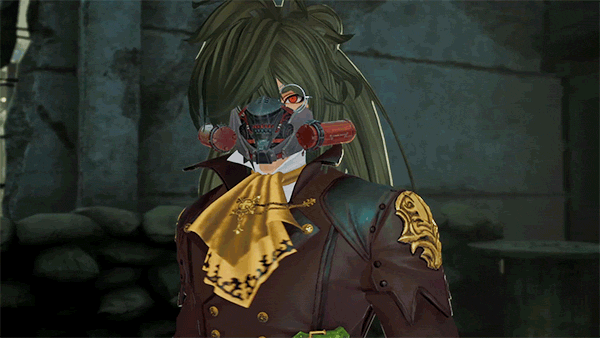
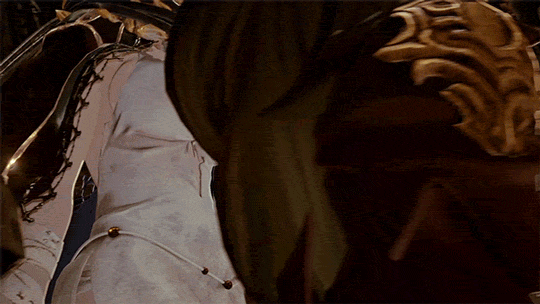
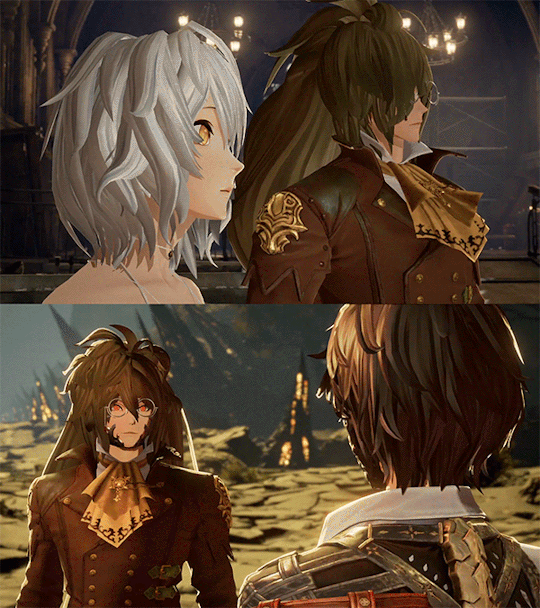
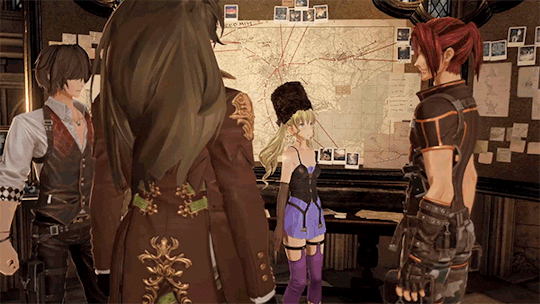
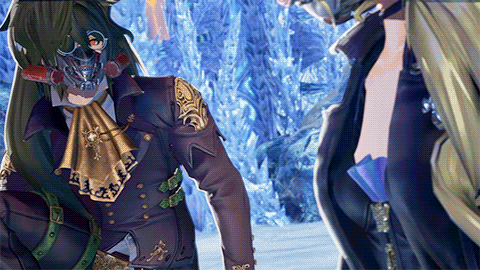
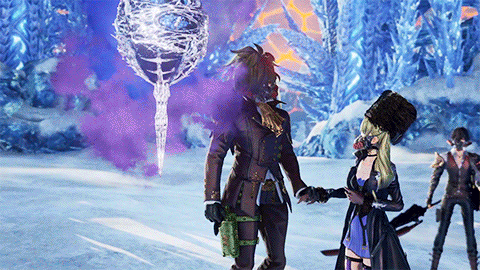
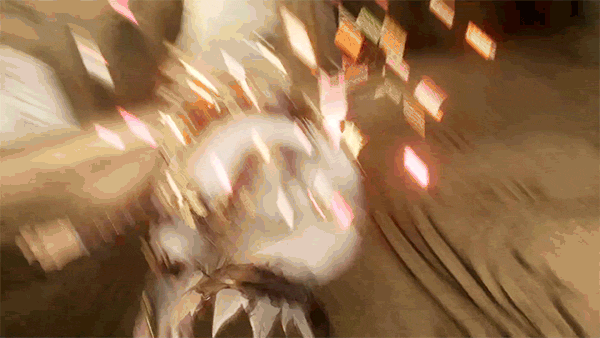
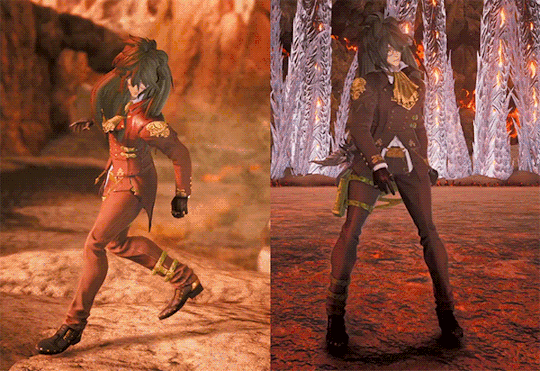
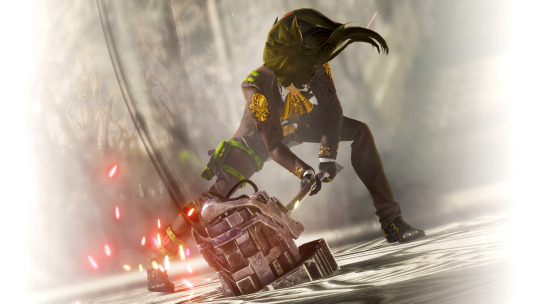
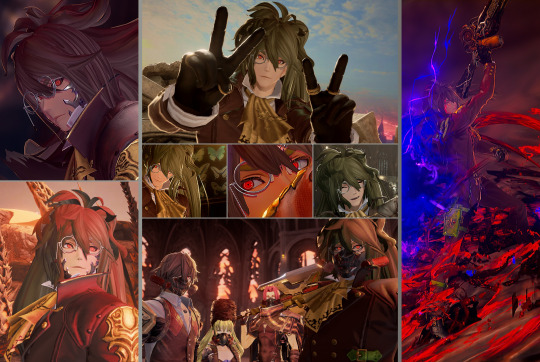
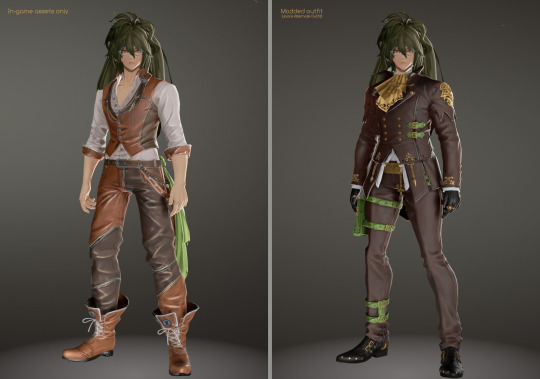
A long while ago my friend gifted me Code Vein, so I’ve recreated the best gentleman in it :D (Used this outfit mod - link - for more accurate look in NG+)
...and then, to ease the post-V3 angst, I played while projecting the narrative that he got isekaied there after Ch4. And boy oh boy, did the CV plot ended up fueling that notion. There were some tropes and elements that - although obviously the similarities were superficial - felt... relevant, if not downright karmic for Gonta’s character, given the context of his own arc.
Overall, fun times *:・゚✧ ╰ (゜▽゜ )-
#gonta gokuhara#gokuhara gonta#code vein character creator#code vein#code vein major spoilers#(both in the post and in the tags below)#ayoo watch out for literal essay in the tags :D#CV ended up being such a balm to the soul after V3 left it utterly crushed lmao (and DR:S wasn't even announced yet)#the game itself is amazing but the tropes and accidental parallels only enhanced my experience#Gonta...you done goofed in your past life. Here's a chance to redeem yourself and right your wrongs! ... Or f up again 8'D#as you face similar dilemmas - but in a completely different context!#what do you mean by 'everyone forgot various fragments of their past and we're restoring lost memories by collecting items that emit light'#what do you mean by 'a guy wants you to eliminate a certain lady to save everyone but then he must eliminate you bc of a mistake you made'#what do you mean by 'please save everyone/please end their suffering'#what do you mean by 'we're trapped inside the barrier and the word inside is hell but it turns out the world outside is even worse hell'#Io and Gonta enter a giant elevator. Io suddently: 'iS sOmEonE PuLLinG tHE CABLES?'#hgdsahjgadh you seriously can't make this up xDDD#Don't even get me started about the endings#and the themes of memories vs identity... or the excessive self-sacrifice and bearing burdens alone never being the answer#Yakumo's long lost childhood friend Miguel aka Gilded Hunter is voiced by Shunsuke Takeuchi - Gonta's japanese VA - how about that#meanwhile Gonta's english VA Kaiji Tang can be picked as a male protag's voice during character creation (nr3 according to the sources?)#and a ton of other tiny things like Yakumo giving an apple as a sign of friendship (not a bunny apple but still :D)#obviously lots of these comparisions are very simplified and far-fetched but still I'm SO very amused 8D#also everyone in Code Vein is just too precious#Io's the best ; - ;#Yakumo is broest bro that ever broed#Mr Entomolist surrounded by actually devoted and caring people for once instead of destructive mess he's dealt with in past#tldr; good times#the isekaied entomologist#gameplay
133 notes
·
View notes
Text
Why Sayid Jarrah’s s6 storyline makes perfect sense in theory even if the execution wasn’t perfect
(This is a post I started working on last year during my first re-watch of Lost. I got distracted and put it aside for a while, so I don’t remember everything I was originally going to say, but I really wanted to finish this post, so here it is! Warning: it’s Looong. Like, over 2000 words long.)
“Evil is not a thing. It is not a condition. It is a choice. You are only what you choose. That alone is what makes you.” - Reign 1x15 (YES I’M STARTING MY LOST META WITH A QUOTE FROM REIGN DON’T JUDGE ME oh hey gifset idea!)
While rewatching “Sundown,” I was struck by the scene in the flash-sideways in which Omer asks Sayid to deal with Keamy once and for all:
OMER: Sayid, don't forget who you're talking to. I know what you did in the war. You were an interrogator for the Republican Guard. I know what kind of man you are.
SAYID: If you think I'm going to hurt someone just because you made a bad business decision…
OMER: No, this is not about me! Our life savings... it's all gone, Sayid, all of it! We could lose our home! Please! Look, I know you care about Nadia. If you care about us, about her, you will do this, Sayid.
Omer takes two different, seemingly contradictory approaches to convincing Sayid. When he says “I know what kind of man you are” in the context of Sayid’s history as an interrogator, we can assume he’s implying that Sayid is, if not exactly bad, then at least capable of things that most people would consider bad. Note the phrasing: it’s not “I know what you’re capable of,” it’s “I know what kind of man you are,” implying that Sayid’s actions as an interrogator represent an essential part of him. It’s reminiscent of Ben telling Sayid, “It’s what you are. You’re a killer” (”He’s Our You”). It’s also reminiscent of Sayid himself saying to Ben, “You want to know who I am? ... I am a torturer” (“One of Them”). But then Omer appeals to Sayid’s loyalty and compassion to get him to confront Keamy.
This is very similar to the approach Dogen takes in the same episode when he tells Sayid to kill “Locke.” (Side note: “Locke” eventually deduces that Dogen's real agenda was for him to kill Sayid, but even if he’s right that Dogen knew there was no chance that Sayid could kill “Locke,” it doesn’t really matter for my argument, as Sayid doesn’t realize that this is Dogen’s real agenda until “Locke” points it out to him.) Dogen enlists Sayid to kill someone—i.e. to commit a morally difficult act that also happens to be one of the things he’s best at—with the argument, “You say that there is still good in your soul. Then prove it.” It’s a lot like what FS!Omer argues: doing a bad thing—thereby giving into the proclivity for violence and cruelty you’ve dealt with all your life—is the only way you can prove that you’re actually good. While Dogen doesn’t explicitly describe violence as an inherent part of Sayid’s identity, surely his instructions would nonetheless have that implication for Sayid. There really isn’t a right answer in either of these dilemmas for Sayid. He can give into his worst tendencies for the greater good or he can resist his worst tendencies at the expense of the greater good. There is no option that won’t leave him feeling like a bad person. It’s predetermined and presupposed that he’s bad.
And this connection in turn got me thinking about Sayid’s whole storyline. My first impression of his storyline was that his central conflict was whether he’s a good or bad person. Now I see another, parallel conflict: whether he gets to decide whether he’s a good or bad person.
Sayid isn’t the only Lostie with this conflict. Kate killed her father because she hated him for making her worry that she was destined to be bad like him. Similarly, Jack’s FS is about him discovering that he’s not destined to be like his father. Sawyer implies that he has no choice but to be a bad guy when he says “a tiger don’t change his stripes.” When Locke says “don’t tell me what I can’t do,” he’s not specifically saying “don’t tell me I can’t be a good person,” but he is protesting against the idea that anyone else gets to tell him who he is. There are two main strands to the Losties’ psychological conflicts: good people vs. bad people and free will vs. the absence thereof. (I phrase it like this because the alternative to free will isn’t just fate. It’s all external pressures, whether they come from fate or from genetics or from other people’s actions.) Sayid is the point at which these strands overlap the most thoroughly.
As a kid he kills a chicken (“He’s Our You”). It doesn’t necessarily mean he has no compassion for the chicken, just that he knows they have to eat. We know it’s not merely the way he was raised, or Omer would have been able to do it. As an adult, the violent promise he showed as a child comes to fruition when Kelvin teaches him to torture (“One of Them”). He says he’ll never do it again, but Kelvin knows he will, and Sayid later confesses to Ben in the same episode that while he “was a good man” when the American army came to Iraq, “there was a part of me that was always capable [of hurting people].”
So on the one hand, we know from the opening scene of “He’s Our You” and Sayid’s words to Ben in “One of Them” that Sayid is naturally gifted with…not exactly cruelty, but the ability to do things that could be perceived as cruel. On the other hand, we know from something he says to Nadia in “Solitary”—that he can’t desert or his family would be killed—and the flashback with Kelvin in “One of Them” that he would never have started torturing people if he hadn’t been coerced into doing it.
In order for Sayid to really come face-to-face with himself, the element of coercion needs to be removed. Sure enough, on the island, for the first time (as far as we know), he tortures someone (Sawyer) completely of his own volition, and I think that’s the main thing he’s dealing with when he goes off on his solo trek—not just that he can’t break the ol’ torture habit, but that he resorts to it even when no one is making him. That’s just my interpretation rather than something that’s spelled out or even heavily implied, but I think it makes a lot of sense. If you think about it, Sayid’s self-imposed exile is sort of a strange reaction to what he did. After all, Jack was complicit in what Sayid did to Sawyer, and he doesn’t even seem to regret it, let alone punish himself for it. You’d think that someone who heals people for a living would be more torn up about about causing harm than someone who hurts people for a living, yet Sayid is the one in crisis. It’s counterintuitive, but it makes sense when you consider that Jack has no reason to define himself as a torturer, whereas Sayid absolutely does, and that’s what takes him beyond the guilt of doing something you don’t want to have done into the shame of being someone you don’t want to be.
So Sayid has two major struggles throughout the show: “am I good” vs. “am I bad” AND “is it up to me to decide whether I’m good or bad” vs. “is it up to other people to pronounce me good or bad.” In “He’s Our You,” when Ben tells him he’s a killer by nature and shouldn’t try to resist his nature, he’s using this lifelong struggle of Sayid’s to his advantage. When this plot of Ben’s rebounds on his younger self at the end of the episode, we see Sayid finally make the choice to let himself be a bad person. He gives in, both to the idea that he’s a bad person and to the idea that someone else (Ben) has the right to identify him as a bad person. (“You were right about me. I am a killer.”) Still, I would argue that even in this episode, Sayid’s arc hasn’t gone as far as it could go. For one thing, he could make the argument that he shot Ben for the greater good, just like he killed the chicken in the flashback at the beginning of the episode for the greater good. More importantly for the point I’m trying to make, Sayid makes the choice to pull the trigger. He concedes that a killer is “what he is,” but his actions are still clearly his own. I mean, after all, he’s messing with the established timeline. It indisputably takes free will to do that. So if he’s going to figure out beyond any doubt whether he has the power to decide that he’s going to be a good person, he needs first to be pushed further into the realm of doubt.
The real culmination of his struggle is when he gets the “sickness,” then Dogen declares him evil, and then finally, after resisting a little, Sayid gives up and teams up with Smokey. He makes his choice: he’s bad AND it’s not his decision. By giving in to the sickness, Sayid gets to give up on the struggle to be a good person and the struggle to convince other people that he’s a good person. But in addition, he gets to give up trying to figure out whether he’s the one who gets to decide if he’s a good person. Remember what he says to Miles: “Apparently I’m evil.” Sure, he says that line kind of sarcastically, but his subsequent actions show that he’s taking that judgment as the gospel truth. He gets to accept that whatever diagnostic Dogen ran on him can measure his moral quality as accurately as a scale can measure his weight. Then he gets to hand control of himself over to someone else (“Locke”).
That’s what makes his ultimate sacrifice so powerful. It’s a combination of the fact that he overcame the “sickness” AND the fact that the “sickness” arc was really just the culmination of his central internal conflicts. If he hadn’t done it, he’d have had an excuse—a supernatural excuse, nonetheless! But he did it, and that means everyone who made him out to be a “killer” or “evil” (or a “terrorist"—thanks, s1 Sawyer) was wrong, not because he was inherently good but because he had the power to CHOOSE to be good, and he used that power. Remember “Enter 77,” the highest-rated Sayid-centric episode? “We are all capable of doing what those children did to this cat. But I will not do that. I will not be that.” I doubt the writers knew at the time what purpose that episode would serve in the grand plan (I use the term “plan” loosely, lol) of Sayid’s arc, but in retrospect, the flashbacks in "Enter 77″ serve a purpose greater than simply breaking everyone’s heart and letting Naveen Andrews act his heart out. They serve a purpose even greater than just explaining why Sayid chooses to stop Rousseau from killing Mikhail at the end of the episode. This episode foreshadows Sayid’s final act by establishing that both good and evil are choices that everyone is ultimately free to make.
In “The End,” Hurley, the character who is probably the most consistent voice of morality on the whole show, declares Sayid “a good guy.” He acknowledges that “a lot of people have told you that you're not. Maybe you've heard it so many times you started believing it. You can't let other people tell you what you are, dude. You have to decide that for yourself.” This is a very succinct, powerful summation of Sayid’s arc. Hurley acknowledges the power other people have to shape our perceptions of ourselves, perceptions that become self-fulfilling prophecies, but also states unequivocally that you write your own story, even if you’re someone like Sayid who has ample reason to give up on themselves. Listen, I agree with fandom that Sayid’s s6 storyline wasn’t handled very well, but I can’t agree with the people who think Sayid should never have turned evil in the first place. His redemption is just way too powerful. When Sayid snaps out of his zombie state with Desmond’s help (the power of friendship!!!), he’s not only deciding that he’s a decent person, he’s realizing that he can make the CHOICE to be a decent person. And in a show with so much destiny nonsense (I mean that lovingly) it’s extremely important to me that my main man gets an arc that affirms that you get to decide who you are. <3<3<3
#Lost#Lost show#ABC Lost#Sayid Jarrah#Lost meta#x#number 16 on the list number 1 in my heart#analysis#I have many thoughts#many MANY thoughts! this may be my longest meta ever#Anna watches tv#Anna watches Lost
35 notes
·
View notes
Text
Untold Tales of Spider-Man 02: After the First Death… – by Tom DeFalco

A story that has me debating the nature of these stories.
A soggy Spidey swings through rainy Manhattan looking for crime shots for the Daily Bugle. He comes upon Kent and Wayne Weisinger on the roof of Stockbridge Jewelers, planning to rob it. Confident that he can end the fight anytime he wants to, Spidey stretches it out so that his automatic camera can take as many photos as possible. Kent and Wayne have a longstanding sibling rivalry marked by Kent's resentment of being the "muscle" to Wayne's "brains" along with feeling that his brother always cheats him. During the fight, Kent appears to charge at Spidey but when the web-slinger leaps out of the way, Kent doesn't stop, charging into Wayne and knocking him off the roof. Wayne falls five stories to his death and all the by-standers think Spidey did it. Guiltily, Spidey flees, forgetting about Kent altogether.
So, Kent goes to Wayne's estranged wife Jeannette to tell her the news. "Solid ice," Jeannette could care less about Wayne's death except that she's lost her meal ticket. When Kent blames the death on Spider-Man, Jeannette gets an idea on how to cash in.
In fact, Peter Parker seems to be the only one emotionally affected by Wayne's death. He has a sleepless night, trying to cope with the situation. Unguarded, he admits to J. Jonah Jameson that he has photos of the incident. His resolve to not sell the photos is beaten down by Jameson's arm-twisting and his own need for money. He sells the pictures and is then introduced to Jeannette, now the grieving widow of Wayne, who has come to JJJ for help in instituting a civil suit against Spider-Man. At school, Peter's conscience makes him counter Flash Thompson's avowal that "Spidey's no murderer" with "Maybe the wall-crawler didn't actually kill the man... but that doesn't mean he shouldn't be held accountable for what happened." Back in action, Spidey hesitates over stopping a purse-snatcher, fearful that he may cause another tragedy. Back home, Peter doesn't know what to do. He recalls that Uncle Ben's death made him swear, "that no innocent person would ever again be made to suffer because Spider-Man had failed to act. It had never occurred to him that anyone would suffer because of Spider-Man's acts." And while Wayne wasn't exactly innocent, "he had suffered because Peter had acted irresponsibly." He ends up having one of those vague discussions with Aunt May where he can't tell her any details because she doesn't know he's Spider-Man, yet she manages to hit the nail on the head, telling him in this case, "Everybody makes mistakes, Peter. You just try to learn from your failures as best you can, and you move on. You'll always get another chance to do better as long as you keep at it."
Meanwhile, Jeannette decides to kick Kent out of the deal and keep any anticipated profits for herself. So even as Spidey sucks it up and gets back into action, proving himself a hero, Kent decides he's not going to be kicked around anymore, buttonholes a TV reporter and gives an interview in which he reveals "that he deliberately pushed his elder brother off the roof of Stockbridge Jewelers because of numerous past frustrations." At Midtown High, Flash crows over Spidey's exoneration but Peter won't let the web-slinger off so easily. "A real hero would have found a way to save Wayne Weisinger" he says, "He would have acted smarter, reacted quicker, or behaved more responsibly... And that's something Spider-Man will have to live with for the rest of his life."
Because these are untold tales, prose stories and utilize the comic book continuity you can analyse them from several different angles and their worth changes depending upon those angles.
Chiefly this boils down to whether I judge this as a story unto itself or within the context of comic book continuity as it existed back then? What about the fact that I’m here in 2020 evaluating a prose book written in 1990 that’s trying to synch up with comic book stories written in the 1960.
It boggles the mind. All I can do is write about how I feel.
I liked this story unto itself and within the context of this book. I think, kind of like the last story, that it doesn’t really integrate into Spider-Man’s comic book history.
The emotional journey of Peter in this story involves learning that he needs to be careful about how he acts. In this regard it’s rather similar to his lesson from Gwen’s death, which is kind of my problem. This story’s title implies this is in fact the very first time Spider-Man has experienced death ‘on the job’ as it were.
Surely such a thing would weigh on his mind more, surely it’d crop up when he dwells on the list of people he’s seen die or feels guilty about dying. Or at least he’d be reminded of Wayne’s death when Gwen dies.
In the comics of course Wayne has never ever been mentioned. Duh, because he didn’t exist until DeFalco invented him for this story. Of course we could draw comparisons with Sally Avril, a character from AF #15 who died in the comic book version of Untold Tales but whose death went unacknowledged in stories from the 60s-90s.
I think the critical difference there is that (IIRC) Peter wasn’t particularly responsible for her death whereas in the case of Wayne, whilst he didn’t push him off the building, his arrogance really did directly contribute to his death. Plus seeing a man die in such a horrible way, especially if it is the first time he’s ever seen a dead body, would likely leave a bigger impression upon Peter than the nature of Sally’s death, although I must admit it’s been a long time since I read that issue so perhaps I am wrong.
From a continuity stand point this is the minefield you always walk, but at the same time it’d be difficult to generate drama if you didn’t step on those mines occasionally.
I feel DeFalco here wanted to tell a dramatic story that had Peter grapple with a genuinely emotional situation and also took advantage of the nature of this story as a flashback tale.
And frankly he succeeded. If you view this either out of continuity or essentially within an incredibly generalized canon of Spider-Man (i.e. Gwen Stacy died, whether Peter did or didn’t think about Wayne is ambiguous though) the story very much works. I doubt DeFalco or anyone else was honestly feeling any of these stories were going to strictly be canon anyway. However for the record this story happens at some point after ASM #9 because when we get a list of Spider-Man’s opponents they all appeared up to that issue.
Looking at the story itself its flaws are incredibly minor.
Some of the dialogue feels old fashioned, but I argue that is likely by design since this is set in an older time period. We go over exposition related to Peter’s origin again, which is more the editor’s fault since we got those details in the first story of the anthology. In fairness revisiting it does serve a greater purpose here because the story is directly ruminating upon the nature of responsibility. In that sense it would’ve been more logical to open the book up with this than the Ant-Man story and I see little reason as to why this couldn’t have in theory happened at an earlier point chronologically. Yeah the Ant-Man story claims Spider-Man’s a new figure on the scene but the passage of time in the first 10 issues of ASM is so vague it’s really not unbelievable that even by issue #9 Spidey might still be considered ‘new’.
Not only does the story explore (and successfully at that) the theme of responsibility, approaching it from the opposite direction from the lesson Ben’s death imparted, but it also features the supporting cast more. Flash, Aunt May, Jameson, the Bugle and public distrust of Spider-Man are all given notable roles to play in the story, again proving that THIS should’ve opened the book.
To go back to the theme of responsibility for a moment, perhaps the most nuanced bit of writing in the story is when Peter is on the phone to Jameson. Peter has a really great ethical dilemma. Would it be irresponsible to profit off of Wayne’s death or would it be irresponsible to not profit off of it and use the money to support his Aunt May?
DeFalco more than any other writer GETS Spider-Man and his depiction of Peter’s internal debate, whilst short, rings utterly true. What gets me is that most of the time whenever I’ve seen this sort of thing done with Peter he’s actually made a different decision, but here DeFalco recognizes that in actuality Peter WOULD consider his responsibilities as the bread winner outweigh what boils down to him merely feeling bad about profiting off a man’s death. It’s not all that different to when he faked photos of Electro to help Aunt May. Yes it’s unethical, but there was a higher responsibility, a greater good at stake.*
Kent and Jeanette’s subplot, whilst arguably wrapped up unsatisfactorily, does a neat job of evoking something of a daytime drama or even noir story, and in that light fits wonderfully into the brand of stories Lee and Ditko churned out way back at the start.
In fact of the two opening stories this one more successfully captured that era and by extension the approach of the comic book version of UToSM. Whilst the Ant-Man story was fun, it was the prose equivalent of a typical MTU super hero yarn complete with dodgy pseudo science.
This story though? Now this is a Spider-Man story. It has a singular main character (Kent is ultimately a supporting player) and whether he’s in or out of the costume the story is driven by the emotional and human problems faced by the character, not the fantastical super human issues. In classic Spidey manner those two halves of his life bleed over into one another and lack a clear cut divide.
Really in the Ant-Man story Peter’s personal life would’ve gone mostly unaffected whether he had gotten involved or not. It wasn’t about Peter Parker, it was about Spider-Man. This story is about both.
Peter needs money to look after himself, his home and Aunt May. So he looks for trouble as Spider-Man and pads out a fight. That gets someone killed which haunts Peter and makes him hesitate to BE Spider-Man, even whilst he reluctantly profits off it as Peter Parker which in turn contributes to his being falsely accused as Spider-Man and kids as school hating on him because he will not defend Spider-Man from these accusations.
Wham, Bam, DeFalco is the Man. THAT’S a fucking Spidey story right there!
The only thing for me which really and truly did let this story down wasn’t the fault of the book, but the audio production.
I’m hoping DeSantos was just off his game for this story, but between this and his prior efforts I think he’s achingly miscast as the narrator of this title. He worked better narrating Stan Lee and Busiek’s forwards than the actual stories. As Aunt May, Kent and Jeanette he wasn’t that bad (actually pretty good as Kent), but his Peter/Spider-Man fails. He can’t even sell the emotion of the non-dialogue bits. He’s not a bad narrator, but not right for this book.
Over all taken strictly within comics canon there are a lot of contradictions. But taken as it’s own thing or (I suspect) within the context of this one book, this is a knock out story.
*By the way DeFalco also seamlessly blends humour and tragedy in the scene. Peter’s internal debate and horror at the prospect of profiting off of Wayne’s death leaves him in silence which in turn is misinterpreted by Jameson causing him to raise his offer which in turn causes Peter more internal strife. Just brilliant!
#Tom DeFalco#Ron Frenz#Gwen Stacy#Spider-Man#Peter Parker#Untold Tales Of Spider-Man#Stan Lee#Kurt Busiek#Aunt May#May Parker#J. Jonah Jameson
8 notes
·
View notes
Photo
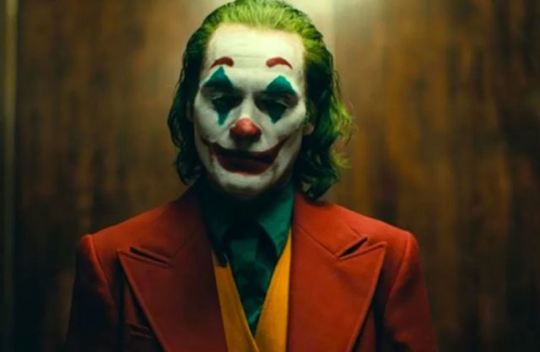
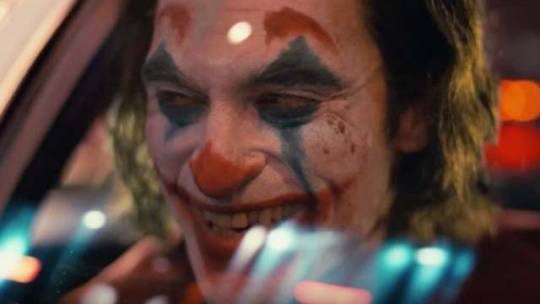
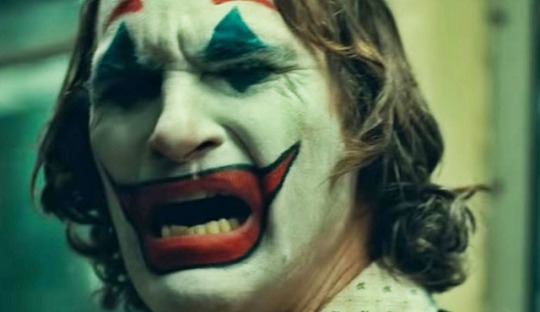

#144 Joker (2019)
Director: Tod Philips
United States
There’s nothing more dangerous than a man with nothing to lose.
Arthur Fleck (Joaquin Phoenix) has problems. It’s a short list, but his issues are substantial: he’s been picked on and brutalized, he’s out of a job, he’s on a ton of meds, he lives at home with his mom, but then again, his mom may not be his mom. That’s the core of his issues, but it’s the relentless nature of these problems that’s really getting to Arthur Fleck. Most people can and do endure similar problems, but they are able to overcome them, or the problems are relieved by change, and they are able to move on. But for Arthur, they remain a constant recurrence, and on each return the anger, pain and resentment builds, until it is impossible to handle it anymore. This puts Arthur Fleck in a dangerous position, the ominous unfortunate intersection where nihilism, opportunism, and a complete lack of concern for consequences merge. Arthur has lost the ability to care, and it’s been demonstrated to him that no one else cares either, so mad acts in a world gone mad seem justified, even necessary. And this is where the mental math of Arthur Fleck’s destructive actions begin to make sense in this story’s chaotic world
Director / writer Tod Phillips has Joker take a 122 minute nosedive into mental illness. This provides the itinerary for the lunacy, anguish and pandemonium that Arthur Fleck will unleash on himself and society. It will be ruthless, and seemingly arbitrary, but to the delusional Arthur Fleck- it will be justified. The film lingers over the dismal personal life that plagues Arthur Fleck. While I found this somewhat tedious at first, by the end of the film –time spent laying this character’s emotional groundwork paid off. A visceral scene that underscores the extent of Fleck’s derangement shows him alone in his kitchen, scraping its meager contents onto the floor, and then crawls inside of it himself. This scene perfectly encapsulates the extent of the inner conflicts in Arthur Fleck; conflicts that will facilitate the emergence of Joker. For his whole life, Fleck has run from pain and emotional confrontation. Working as a clown for hire, he has up to this point in his life, put on a happy face, and done his best to withdraw from the confrontations with life and its hard truths. But no matter how many pills he takes ,or counselors he visits, it’s a doomed strategy and it will no longer serve.
From this point forward in the film, I began to appreciate Phillip’s handling of the Joker’s narrative. What’s been discarded is the character’s over stylized outfits, any quirky hero gadgetry, and the unrealistic superhero tropes that heroes and villains seems to magically accumulate when they decide to get to work. Instead, Joker is an opportunist, he makes do with what is available to him. What others have forced upon him he accepts, what luck seems to accidentally drop in his path he utilizes, nothing is off limits in what he can employ to achieve his deserved retaliation. Gone is the need to hide behind an elaborate persona. No more elaborate costumes, simply use the leftover gear from your day job as a clown. Get a gun from a co-worker. Need to contact your suspected father? Easy, stalk him into the men’s restroom, or show up at his house and lure his child to the gate. You don’t need some fantastic criminal lair, or an arsenal of mesmerizing weaponry to get results, you only need the wounded mind of a revengeful terrorist and a pair of scissors. To my mind, Arthur’s practical opportunism was the scariest part of the character. Since Dr. Frankenstein, Hollywood and comics have groomed villains that are equipped with scientific intelligence and clever strategies for global domination. They were narcissists that were unlucky in love and therefore expended huge effort in remaining vindictive, secretive, and in not getting caught – in short, they had something to lose.
When Arthur Fleck, takes his anemic body, and clownish nihilism onto the talk show stage of Murray Franklin (Robert DeNiro), a few critical events transpire: 1. Arthur, now Joker, has the opportunity for a large public audience to finally get shit off his chest. 2. Being a guest on the talk show confirms his own delusions. Segments of the film depict Murray Franklin as a kind of infantile fantasy that Fleck could maintain. But the object of his fantasy has turned out to be just another jerk in a long line of abusers. Murray will eventually become the victim in this encounter. Shooting Franklin in the face is justified by Arthur Fleck / Joker, because Franklin had it coming – he was not the compassionate father figure willing to help an innocent soul, instead he was no different than the corporate thugs that abused their way into becoming Fleck’s first victims. In classic anti –hero fashion, the film sets up moral dilemmas for audience and character. In Arthur Fleck,we see a man actually trying to instill good in the world, we empathize and understand his emotional schism, but the world just won’t cooperate. As a result, the opportunity to retaliate through terrorism presents itself, and the offer is taken.
Joker has bought the trajectory of the cinematic monster / villain to a full conclusion. 1950’s sci –fi visualized the classic Hollywood monster as a creature outside of us, attacking the helpless citizenry. By the end of the twentieth century, the monster was within us. It dwelled deep within our secretive psychology and manifested in the form of madness, fear and hatred. By the time we reach Joker, the monster is now everywhere. It lurks inside us, and it runs rampant throughout a morally bankrupt society. It has infiltrated every institution, and never lets up, metastasizing at an accelerated rate. The world is out of control, and from this context of helplessness Joker seizes the opportunity to unleash his nihilism onto those who have ever wronged him. Now, the victim will become the oppressor, the bloodbath will ensue, and there is nothing to lose in finishing what is already well underway. The whole Joker narrative is a sober reminder of what we see in operation throughout the world today, and there are a number of political and moral situations in the movie that could be dissected through contemporary cultural analysis. The problems are many, and occupy every existential strata, from the singular to the systemic.
At some point, perhaps from the first five minutes, Joker stopped being a super-hero franchise film. It has subverted fantasy and costumes, for a particularly abrasive nod to realism. The scariest part of this film, is not the clown make up –that’s creepy for sure – it’s the idea that this is an entirely plausible scenario in today’s world. It’s a movie of a comic villain, so it’s off, but it’s not that far off. We look in the mirror and convince ourselves we’re not really sure how it all got to this point, but we do know, and it did. We can try to hide from the horror and crawl inside the fridge, or medicate ourselves, but these devolve into a form of denial. Inevitably, some will decide to lash out, to grab what’s available and take their justified revenge on others, and they’ll commit any atrocity with a straight face, comforted by the delusion of self-righteousness.
There’s no such thing as innocence anymore, ask Arthur Fleck. It’s time to put on a smile, step out into the world, and make the fuckers pay. After all, what is there to lose?
https://filmjrnl365.tumblr.com
3 notes
·
View notes
Text
Pam, I am.
Although we have, in one way or another, conceptualized theories and deducted reasons as to why and how things happen and as to who and what we truly are, it will always be a never-ending question to answer: Who are we? What is our purpose? What has led us to be this way?
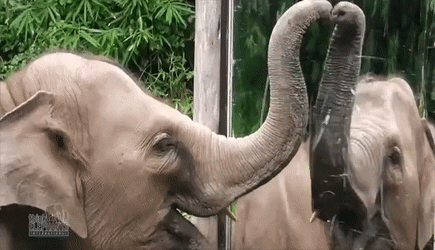
I have always thought that we lived in such a subjective world. Although sometimes, I tend to measure actions and situations in what I perceive as objective methods, I am still left with my incapacity as a human being to truly see the world in an omniscient and omnipotent manner. I realized, after months of lectures and lengthy readings, that I may only be able to understand my context in my environment. Judging one’s context would be impossible to perfect for one’s environment is phenomenologically experienced. Comparing this to my fascination with animals, it is impossible for us to truly explain today the intelligence of animals for it is apparent that we humans have continually compared and used our so-called intelligence in testing animal proficiency. If you’ve heard of the Mirror Test, where scientists place dots on the foreheads of animals to test whether they recognize themselves through their reflections, results show that animals such as the monkey have understood that their reflections are, in fact, themselves. However, does this say that dogs, who tend to be surprised upon seeing themselves in a mirror, are dumb? Dogs have way poorer eyesight than humans. However, their sense of smell is a lot stronger than ours. Thus, the mirror test fails to successfully capture the ability of all animals. Now, using such analogy in understanding different individuals, we are faced with the dilemma of genuinely understanding one’s complexity. We humans are often clouded by cognitive biases. Anger, joy, sadness, disgust, fear – even our emotions serve as uncontrollable variables. Although such aspects of our humanity have been proven to be helpful in our survival, will it be sufficient in reaching our goal of explaining the unexplained?
One’s complicated nature may be rooted in the intricate structures of society. Who could I have been if I were male? How different were things like when I was younger compared to today? How impactful are my peers and loved ones in my day-today living? What is the key role played by institutions such as the church or the government in my well-being? How do such interactions influence me? Chronosystem, Macrosystem, Exosystem, Mesosystem, Microsystem – these subsystems that comprise my network of relationships and beliefs have shaped me and if any one of these could be even any slightly different, it would mean a different story and a completely different person than who I am today. For instance, my demand and resource which could be completely similar to someone else’s could produce a different product due to differing forces. This explains how, for example, privileged people with the same personal characteristics and amount of resources could still differ in success. In the end, we still have something that’s inherently ours and with that, our future lies in our hands more than ever. Thus, despite the persistence of change in our lives, we adapt in order to combat perturbations in our daily routines. Unfortunately, such disequilibrium is sluggishly confronted. Thus, we may feel as if we are not good enough at times or that we are failures and disappointments. It is during such moments when I remind myself that change is necessary and inevitable. Ones lapses and shortcomings, however, should not be a measure for one’s capacity as we all adapt in our own paces.
Now, more than ever, I find the psychodynamic perspective an interesting way into seeing the structures of personality. I am often left to ponder about my ability to balance, and oftentimes, offset my Id, Ego, and Superego. What defense mechanisms do I use often? Is my whole personality a product of some metaphorical rug? I’m thrifty and spendthrift when I want to. What does that say about my toilet training as a child? As a teenager, approaching young adulthood, it is quite enthralling that I actually am experiencing identity confusion whilst stuck amidst the search of love and intimacy. Individuation, especially at a time such as the one my generation is facing, is generally erratic and, at times, constraining. Identity today, is such a big forlorn question to answer.
Furthermore, one big walking contradiction facing us is our globalizing world. As someone raised in the 21st century, in a developing country specifically, I am heavily vulnerable to the changes in culture and identity. As a teenager, I have developed a digital identity that has demarcated itself from my I-position offline. Such things like the “loob” are challenged as well especially with the growing burden of Filipinos stuck amidst a trafficked channel brought about by modernization and the constant push and pull of local culture. At times, it feels like I am burdened to play a performance for others, especially due to peer pressure and standards set by crowds in school that ostracize those who are different. As a straight female, such hardships do not stop there as we are continually under the mercy of a patriarchal society.
If I had one main takeaway from this semester, it would be that until now, there is no one way into understanding the self. We, humans, are deeply intertwined with complex histories and contexts that no one theory can totally define us. However, the measure of my progress from what I had learned in the beginning of the semester to my knowledge today, is not with my ability to concretely explain who I am and my upbringing. It is in the apparent expansion of my perspective and curiosity into who I am and in the complex society I am in today. Afterall, there is very much more to learn.

Thank you, Ms. Keh. Despite my course being far from Psychology, I have always been interested in the study of mind and behavior. I hope many others see the significance this subject plays for society. No matter how complicated and scientifically-convoluted the concepts get, it all boils down into the basic virtues that one upholds. We must all continue to better ourselves and to be kinder to others, for we, humans, like the saying goes, are not islands. Everything in this world is interdependent and reciprocally related. We only need to act with sincerity and kindness in order to make a change in this world, no matter how small.
1 note
·
View note
Text
Drunj!Der Yells About Outlander
Thoughts on Ep. 402
It shouldn’t be surprising when I say this post is going to be less jokey than last week. If that’s not your jam, I recommend you stop reading now and maybe just sing “Everyone is Garbage” to the tune of Everything is Awesome while you instead go watch the entirety of Underground, or the Rosa Parks episode of Doctor Who.
I have to say, the producers on this show have said a lot of dumb shit in the past. From “Frank’s a good guy!” when he’s portrayed as being objectively awful on screen to “We don’t shy away from the horrors of the past because we’re so daring like that!” as a justification of their need to rape or assault everyone with a pulse. But one of the dumbest things in recent memory was at NYCC when Ron tried to claim that Outlander isn’t a political show.
Bullshit. Everything is political.
Using America the Beautiful to underscore how America didn’t, and still doesn’t, live up to the ideals we sing about in our romanticized versions of our history was political. Albeit in an overly heavy-handed way. Choosing to do an episode about slavery that focuses solely on white people and not the enslaved, who are just there as props for the white people’s moral dilemmas, is political. Choosing to show a lynching on screen in a time when Black people are still being killed in horrifying numbers at the hands of white people who are supposed to serve and protect, in a time when Black people have the police called on them while simply having a cookout in a public park, in a time when a white man can shoot an unarmed Black boy and walk away with no consequences, is political.
How we portray Black bodies on screen matters. And in this instance, a *very* white show chose to frame enslaved people as the props against which they highlight the guilt of the white protagonists.
I really do wish they included someone checking to see if Claire, who had a man killed right in front of her, was ok. But instead she just does the emotional labor of assuaging Jamie’s guilt over Bonnet’s attack. Because doing emotional labor is just what women do. *flips off the patriarchy and also the producers*
Young Ian’s awe at River Run, how it’s befitting a king, just highlights how he has no context for what the symbol of a big white plantation house means for so many people. That image is so laden with white supremacy it should immediately trigger a bad taste in any decent person’s mouth. Go ahead and @ me.
Jocasta Cameron is straight garbage, but Maria Doyle Kennedy is fucking amazing. A++ casting, show.
Not sure if the parallel of Jocasta telling Claire to call her Auntie and Claire telling Phaedre and Mary to call her Claire was intentional or not. Will have more to say about that in a second...
Honest question, if the dog who plays Rollo is so poorly trained that they have to cut him out of most scenes, why didn’t they get a different dog? Slash, I thought they’d been training this one since it was a puppy?
“Some River Run hospitality.” *feels nauseous*
I SO hope they don’t do the Jocasta and Ulysses having an affair storyline from the books. Please, show, don’t do it.
Show!Jocasta is so much more overtly garbage than book!Jocasta. This is a woman who had to flee her country after the Rising because of how horrible the English were to the Scots. Yet she doesn’t bat an eye at the concept of keeping human beings as property. Even with Jamie, she isn’t thinking of him as his own person, but rather someone she can make do her bidding and use for her own purposes. She should fucking know better, but the promise of benefiting from white supremacy is apparently more beneficial than actually having morals. Fuck you, Jocasta.
Claire’s palpable discomfort with being led around by an enslaved man juxtaposed with Jamie thinking nothing of it as he reminisces about his mother is just the start of me side-eyeing Jamie a lot this episode.
Don’t worry, I’m an equal opportunity side-eye’er. Claire’s gonna get her share of it too. Starting with her asking Phaedre and Mary to call her Claire.
Claire. You know all about chattel slavery. You know it’s wrong. You know how enslaved people are treated. Why the fuck would you ask Phaedre and Mary to put themselves in a position to potentially face serious consequences for not being “properly deferential” to a white person just to make yourself feel better about being complicit in their enslavement. She’s prioritizing making herself feel better at the expense of the potential well-being of Phaedre and Mary. JFC, Claire, do not endanger the marginalized people you claim to care about in the name of wokeness.
The skunk bit with Young Ian and John Quincy Myers is a tad off-putting tbh. I love that Ian wants to learn about Native Americans and looks to find similarities with them rather than think of them as “savages,” but like they’re having this convo while completely ignoring the fact that an enslaved boy is filling the tub and like immediately just start talking about banging Native American women. It just feels like they were stretching for some levity when the characters in this episode don’t deserve any.
Jamie: “Uncle Hector and you have achieved a great amount here, Auntie.”
Me:

Jocasta: “I purchase them in lots, in order to keep those with children together.”
Me:
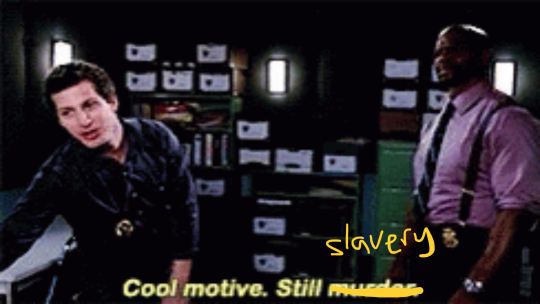
“Over the years, I found my slaves to be more productive when treated with benevolence. You see, I don’t actually see them as people. I only treat them nicely so my property can reach its maximum potential output. I am a garbage human and the myth of the benevolent slave owner is just bullshit that white people tell themselves to absolve themselves of the fact that they benefit from white supremacy.”
That Jocasta can refer to the people she enslaves as both too expensive to be livestock and friends in almost the same breath is peak caucasity. Seriously, show!Jocasta is an irredeemably shit person.
Also Jamie being like oh well done, Auntie, you are so nice to these people makes me want to punch him in his dumbass face. Show!Jamie has been on my last nerve for a while tbh.
Like bro, you literally lived in a cave for fucking years because the English were out to fuck Scots up. You were in prison for fucking years. You served on an English estate, where you were raped, for fucking years. And now you see people who were ripped from their homes and families and brought across the sea against their will (hey remember your nephew, Ian?) and you’re like oh Auntie, you’re such a nice white lady. Go fuck yourself, Jamie.
Jocasta playing the woman card with Jamie to justify her needing him to get involved with the enslaved labor on her plantation is something Colum would be proud of.
And Jocasta being like hey, “Claire, you’ve been homeless for a hot minute, shower me in praise for how nice my slave-run house is as I ‘graciously’ let you stay here” is such a power move in the worst possible way. Colum and Dougal raise a glass from whatever afterworld they ended up in.
Claire, girl, why couch your opposition to slavery in the Quaker influence. Own your opinions on this. Take a fucking stand. There are things in life worth standing up for. This is fucking one of them.
Oh Jenny. I love that she wrote to Jocasta about Claire. But also last season still turned me the hell off from show!Jenny so really I don’t like that lady.
Fuck each and every one of these yuppie white men.
Aw, woke-ish!Ian. Yes, it was their land, but let’s please not think of the Native American women as sexual conquests like you were earlier. KThxBai.
Ok for real, after living at Leoch and scheming through Paris and then being fucked over by Bonnet, Jamie sure doesn't learn much about people being sneaky. How does he not see where Jocasta was going when she so readily positioned him in a position of authority on the plantation.
Jamie, bro, buying into the benevolent slave owner narrative is not a good look. And by not a good look, I mean you are a garbage person. I get that that’s the point, but still.
Ok so the book frames Campbell as a friend to the Frasers, and the show is trying to frame him as someone genuinely trying to look out for the Frasers’ best interest. But he has also resigned himself to the reality of his current situation with no desire to try to make things better since it would mean making a personal sacrifice. To which I say, fuck you very much, you coward.
Hi, I’m Der, and I’m of the opinion that if you are in a place of privilege and see bigotry and oppression taking place, it’s your duty to stand the fuck up and try to make a change.
“If we take the Tryon option, we don’t need to feel bad about slavery and can just bask in our white privilege on stolen Native American land and not have to deal with the consequences of accepting free land from the English, y’know, the people we hate, for almost a decade.” Cool, Jamie. Cool cool cool. Remember last episode when you were almost woke?
Claire acting naive about what’s going to happen to Rufus should seem out of character. She went back into the past knowing full well how things were there. She knew that if she went back, she’d be in a time where this was the reality. Yes, she thought she’d be in Scotland, but that’s just another sign of her fucking privilege. She was like oh, I’ll just be in Edinburgh and not have to consider slavery. Joe Abernathy did not deserve the shaft he got in season three and he does not deserve fucking peak-white-privilege-the-past-is-fine-because-it-doesn’t-really-affect-me Claire as his friend.
Scrub Nurse!Ian is literally the only positive part of this episode.
This entire scene of a room of white guys being like “we need to uphold the law!” makes me want to kick the shit out of each and every fucker who has ever owned a confederate battle flag t-shirt or a bumper sticker.
Also fuck each and every person who voted for the authoritarian narcissist who currently occupies the white house in 2016 or any of his fucking lackeys in the midterms. All these fuckers are straight garbage. And all the fuckers defending the authoritarian tendencies of the current administration can go fuck themselves. Go ahead and @ me.
“Don’t worry, my husband is heir to this estate.” Oh don’t fucking delude yourself, Claire. Rufus is going to die. And you are complicit in his death. Fucking own it.
*insert obligatory Joe Abernathy deserved better rant here*
I don’t like giving partial credit, but at least the show let fucking Rufus tell his own story. Just for a little bit though.
Ok I’m calling fucking bullshit that Ulysses, a man who (I don’t care what his relationship with Jocasta has been) has been enslaved for years, fucking calls Claire out and tells her she should have let Rufus die. Way to fucking try to absolve Claire by having a Black, enslaved man try to make her upcoming actions ok.
Don’t act naive, Claire. You know how this was going to end. Rufus was always going to die. You are complicit. There is no escaping that. Fucking own your part. Fucking own your privilege. And also fuck the show for centering this so much on the fucking white people.
Rufus didn't get to be an active participant in his own death. Claire should *not* have been absolved of her decision to kill him by having him ask her to do it. But by not even telling him what she's doing, she's just another white person making decisions for him without his consent. She also should have known to kill him without Jamie telling her to. *gestures at the Graham Menzies part of the books* She knows what's about to happen. She should accept that by choosing to be in the southern colonies, she's going to be complicit in slavery. She made her bed when she decided to go back into the past and now she should have to lay in it.
Sure she may not have known that she’d end up in the colonies, but she still knew she’d be going back to a time when she’d end up being part of something that is morally abhorrent. But apparently getting that ginger dick was worth it.
It’s cute they do a parallel of her helping Rufus to die with her helping Geordie to die. But I can’t help but think this is as much for her as for him.
Every white person in this episode is trash. As they fucking should be.
Fuck everyone who defends the continued existence of confederate memorial statues tbh.
I know that’s out of left field, but yeah, fuck those people.
The fact that this shit is bringing up very real feelings about today’s political climate makes me fucking angry at the fuckers around today and also the fucking production crew for trying to cater to the meemaws by saying the show isn’t political.
Fuck Jamie for being like yeah, I can just pray this shit away. No. God is a cop out. You did this. YOU. You need to own this. Don’t you dare hide behind your faith. You will not be absolved.
Fuck this show for showing a fucking lynching and them immediately cutting to Claire’s face to make the lynching about her white guilt. Fuck them.
If Jamie and Claire really don't want to be complicit in the atrocities of colonial America, they should move to a city where they could join in the work of starting to dismantle the things they claim to be morally opposed to. Instead they embrace their privilege of getting to ignore slavery by leaving River Run next week and go out to colonize Native American lands.
And just think. After all of this. After witnessing a lynching. In a couple episodes, Jamie’s gonna voluntarily send a guy into slavery!
Fuck.
Please all go read Ta-Nehisi Coates’ Between the World and Me. KThxBai.
118 notes
·
View notes
Text
So because I finally finished the first season of tvd and don't want to flood your dash with fifteen million text posts, here's a mish-mash of thoughts I have:
I have never wanted anything more than I want Tyler and Jeremy to be friends. It would just make SENSE. They would balance each other out- Jer would get the experience of an all-or-nothing friend that he craves (Matt, who I love, spreads his love too evenly amongst all his family to pay enough attention) and Jeremy would get a friend who is stern and yet light enough to call him out on his teenager nonsense without being a preachy older sibling. I WANT IT SO BADLY. ALL OF THEIR INTERACTIONS ARE EDGING SO CLOSE TO FRIENDSHIP, AND THEY'D FIT SO WELL. (And for all that Jer is #moodybroodyandboring, he is very similar to Elena in the sense that he is very well Loved. He gets every girl! His parents were normal and good and loved him! His sister and aunt treasure him, and give him space! and Tyler does not have even a SECTION OF THAT & Jer would be able to give him a piece of normal. pls I'm dying I need a reason to like Jer.)
Caroline is the Light of My Life and nobody is allowed to hurt her ever. (I just watched The Thing happen in S2 and I'm!!! not ready. I'm not ready at all.) She and Matt work SO WELL together but mostly I just love that Caroline gets to feel things probably the most out of anyone in the main cast. Between all these emotionally repressed vampires and Elena trying to hold together the emotional lives of everyone around her with a shoestring, Caroline going "I WANT TO BE LOVED, PAY ATTENTION TO ME" is a complete breath of fresh air. She should star in every show, and all dilemmas would be gone by the second season. (She draws people out, in a different way than Elena, but no less important. She's precious.)
Matt is also officially My Favorite out of everyone, and maybe not least because he's the one I'm most like. He's so committed!!! to loving as many people as possible. I can really see how he and Elena were best friends for their entire lives. (It's also why they couldn't work out. They are too much the same side of the same coin.) He spends the entire season throwing his arms around his sister and his mom and Elena and Caroline and Tyler and I LOVE. HIM. He has a corner in his heart for everyone, even when he's mad at them. I love how loving he is.
the sheer desperation in Stefan's voice when he says "he's my brother!" I--
I actually genuinely like Elena's birth parents but ONLY in the context of her. I just- I have a soft spot for parents who look at their kids and go "nope, nope, I'm not enough for them, I have to find something better for them" which in my eyes is a grand move in the direction of heartfelt parenting. (You're never enough for your kids. That's the point. Being able to exist outside of yourself enough to think that they need a better life- that's the first step.) I'm hesitantly interested in Isobel and her heartbreak. I don't actually care that much about John- but I did DIE when Elena called him "dad" and his breath caught. (She draws the truth out of people, I'm standing by that idea. It's the essence of Elena's pull. She is the gentle, loving truth. She isn't honesty- she's truth in the context of generosity, grace in the pull of love. She makes everyone reconsider themselves.)
damon's face when he's cradling elena's face and stefan is trapped and damon's trying to calm her down. he's just so STEADY and she's so WORRIED. kill me already. they're so gentle with each other even when they're trying to convince themselves that damon doesn't like anybody.
the amount of Irish-Scottish repression that Stefan is undergoing is STRESSING ME O U T. WILL THE BOY!!! JUST SPILL HIS FEELINGS SOMEWHERE. LIKE, WRITE A BOOK OR SOMETHING LIKE THE REST OF US REPRESSED MORTALS. YOUR FLASHBACKS ARE CAUSING /ME/ ACTUAL EMOTIONAL TRAUMA AND YOU NEED. TO CHILL MY BOY!!!
Stefan: "guess I'll just put all these haunting secrets into my left clavicle and leave them there to simmer and someday I'll just die from all these ghosts that won't leave me alone it's fine I'm fine it's fine"
I want so, so desperately to like Bonnie, but she's making it so hard to get a proper reading. Also, will someone just please let her wear her hair like a normal person. Those bangs....ay ay ay. Kat is so pretty that she makes it work, but please. Set the girl's hair free.
I haven't emotionally recovered from The Dance and I Never Will, I Refuse. Why isn't the whole show like this??? Why doesn't EVERY PIECE OF MEDIA EVER use dances as a way to show people falling in love????? It's the most prime, beautiful, wordless way to show connection I can'ttt because a lot of damon/elena is very wordless so far & this was probably the only way to draw them out of themselves and emote at one another without fighting. so GOOD
Katherine's back. I'm not ready. But also please let her and Elena wear these beautiful flowing curls for the next season, PLEASE. They are SO pretty on Nina, my goodness.
Having a great time so far!!! Wish me luck as I move onwards!!!
#eden attempts tvd#also i love alaric??? i feel like i haven't talked about him yet but he's also my favorite#he took about three looks at damon and had him down pat#elena: how's your new best frieeeeeeeeend damon#damon: it's ok we got matching jackets i think we're warming up to each other#alaric: yeah i'm making him a friendship bracelet but i don't wanna take it too fast you know#stefan: i am agog i am aghast is damon making a bestie at last????#(also how desperate he is about his wife- i love him he's good)#(i wish we had more of him & jenna they are genuinely sweet and cute)
5 notes
·
View notes
Text
Headcanon: Jack’s relationship with Pitch/His stance with the Guardians during the movie
This is gonna get a bit lengthy, so I’m throwing this all under a read more to help keep your dashes a bit neater <3 ( I’m… so sorry mobile peeps;; )
So something got me thinking about Jack’s relationship with Pitch within the context of the movie; I think while listening to a song that I thought was extremely fitting for them. ( Which was ‘Hollowman – Trapt ‘ for those who are curious! ) It’s one of the things that really jumped out at me at first when I saw the movie in theaters, and I really appreciate how their dynamic is a bit different than the ‘norm’ for a protagonist with Jack’s personality.
I’ll start by saying that, in tune with the rest of the movie, Jack and Pitch are not strangers to one another. ( Even in the movie already seems to either have met or know each other pre-movie, and among the guardians the only ones that haven’t met face to face before the movie seems to be North/Tooth and Jack. ) When North mentions Pitch, Jack just says jokingly ‘The boogeyman?’ and during the confrontation at the Tooth Palace, Pitch recognizes him and calls him out by name.
Speaking of the Tooth Palace, this is the first time we see Pitch and Jack in the same setting together, and if you pay attention mostly to Jack compared to the Guardians, you can notice how while he’s apprehensive and on the defense, he’s not really… antagonistic towards Pitch. Like look at Bunnymund; he was glaring since the moment Pitch appeared, and Tooth tried to attack him. But these are Jack’s expressions:

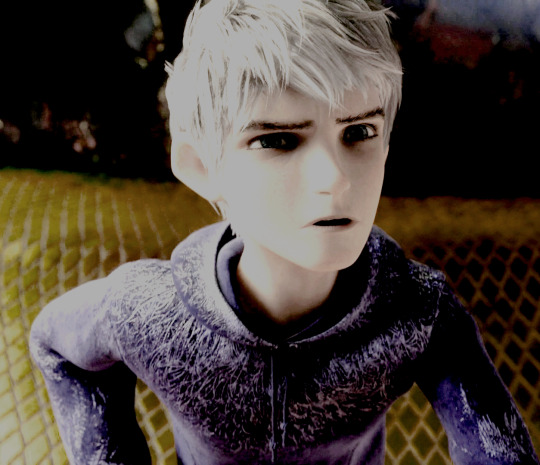

When Pitch first appears and talks about his goal, you can see the empathy in Jack’s eyes; cause he knows what it’s like to desperately want to be seen. And even those moments when he does glare, it’s half-hearted; like in a detached kind of way, since while what he’s saying is terrible for the guardians, it doesn’t really affect him personally. Not at that point at least. And when all the guardians start to chase Pitch, we see the scene focused on Jack being the very last to kind of jump off the platform and chase after them.
It was while thinking about this that I realized something: In the movie, Jack’s position has been neutral in regards to everything going on between Pitch and the Guardians for about 50% if not more than half of the movie. Until the Antarctica/Memories scene, Jack’s only been doing what he’s had to do to help himself, and honestly he still wasn’t fully invested with being one of the Guardians until he knew about his past. I’ll explain this more as I go on.
So Pitch leaves, and Tooth mentions what she really protects as the tooth fairy an about the memories in the teeth. It was only when she mentioned the teeth – and that she had Jack’s teeth and memories too – that Jack really seems to come alive and get himself invested in helping them. ( Especially with North saying ‘If you help us, then we’ll give you your memories.’ ) Obviously, in the following scenes, he let down his walls a bit and bonded with the group a bit more; to the point where when Tooth apologizes for not knowing about his memories he just says that they should focus on her. He was really beginning to feel a bit like one of the group… and then comes the slap in the face in the form of Jamie being able to see everyone except for him, which seems to remind him more vividly about his number one goal: the teeth.
When Pitch and Jack meet again it’s on top of the roof after Jack takes down one of the nightmares. I’ve said it once and I’ll say it a thousand times—I love how the movie allows Jack to be scared/wary of Pitch. You can see in the way he looks here – minus the initial surprise of Pitch coming up behind him – that he makes him uneasy, but he collects himself when there’s a bit more distance between them; shouting ‘You made it my fight when you stole those teeth!’ in response to Pitch saying ‘For a neutral party, you’re spending a lot of time with them. This isn’t your fight.’
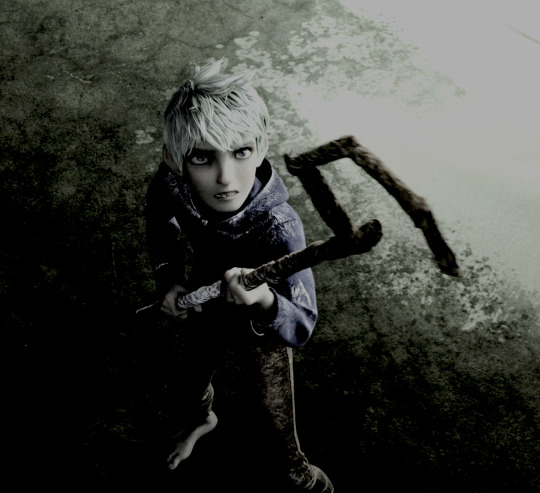
Notice how Jack doesn’t defend him being with the Guardians; he doesn’t try to say that he’s one of them or anything. For him, this is just about his teeth; his number one priority. Judging by Pitch’s reaction, it’s safe to say that he didn’t know about Jack’s lost memories before this moment either, as he puts two and two together later on and uses that as his leverage.
While Sandy’s ‘death’ affects all of them, it affects Jack pretty badly too, and I think there is a bit more to him blaming himself for not being able to save Sandy. At this point he’s more and more conflicted: he wants his memories and doesn’t believe he’s truly a guardians, but at the same time he’s starting to let himself become attached to the attention the guardians are giving him and wants desperately to fit in, even if he doesn’t believe he will. Jack feels guilty because he feels like he caused his death by being too reckless about getting his memories.
Okay, my favorite scene: Pitch’s Liar. In another headcanon post I mentioned this scene I think when I went on to say that Jack is extremely impulsive and has a dangerous amount of curiosity. Instead of focusing on the tooth fairies after finding them, he catches sight of the teeth and suddenly that’s ALL he can focus on, rummaging through to look for his own box. Only a moment later, he’s face to face with Pitch.

Pitch taunts and basically mentally abuses Jack for the duration of their interaction and brings up his new confliction with the guardians and himself: “You want the answers so badly. You want to take them and fly off with them, but you’re afraid of what the guardians will think. You’re afraid of disappointing them.” There’s nothing about him accepting being a Guardian or even wanting to. Jack’s just scared of what they’ll think about him if they know what when he gets his teeth, he’s gotten what he ever wanted. He’s gotten close to them and wants their approval; he doesn’t want this new attention and companionship to go away, and that’s what Pitch is hinting towards.
And basically his worst fears all happen anyway. Easter is ruined and Baby Tooth is taken, but he has his memories. In the start, he thought that he wouldn’t care about this dilemma but now he’s face to face with the people he considered his friends hurting because of him, and knowing that it’s his fault that all of this happened. And to pour salt into the wound, they reject him. They don’t hear him out and just push him away. “We should of never trusted you!” Just like what Pitch was saying: ‘They’ll never accept you. Not really.’
The Antarctica scene is one of the most telling about their relationship. It’s the first time we really see Jack genuinely angry at Pitch and he immediately tries to attack him when he approaches. Pitch tries to use Jack’s empathy in order to get him on his side, playing to his past and open wounds in order so that he’d heard him out. ( “We don’t have to be alone, Jack. I believe in you.” / “All those years in the shadows and I thought no one else knew what this felt like. Now I see I was wrong.” )

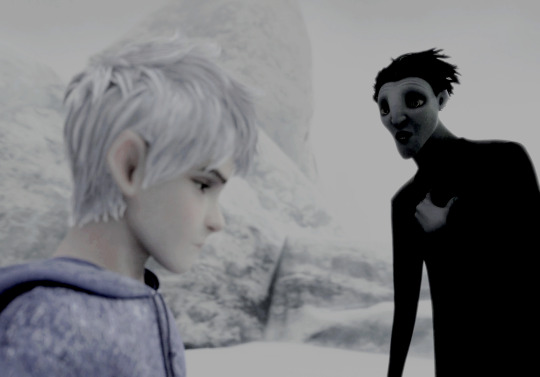
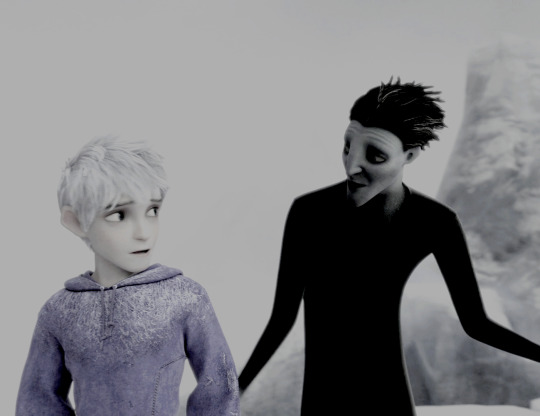
Honestly?? I don’t think I’ve ever mentioned this, but the chance of Jack completely turning around and joining Pitch could have been pretty high. They are similar in a lot of ways: unbelieved-in, alone, ignored, etc. Jack sees himself in Pitch, and I think that played a huge role in why he heard him out or even why he wasn’t fully invested in fighting him. Jack could of ended up like Pitch a long time ago tbh: and he knows that. And for the first time, he’s looking at Pitch outside of himself and he’s realizing that while they are the same in a lot of ways, Jack can be different. So he declines teaming up with him, which angers Pitch, and basically attempts to kills him. ( They don’t put it in so many words because y’know kids – EVEN THOUGH THEY SHOWED JACK’S DEATH BUT GO OFF I GUESS – but we know what it was. )
When Jack got his memories, he finally understands why the Man in the Moon choose him and started to realize that maybe he can be a guardian after all. There’s some good in him after all, even through the years of mistakes and loneness, and he was chosen for a reason; not just some mistake. So he gets out and helps the Guardians fight Pitch as one of them for the first time in the movie.
Now even after all of that, I’ve noticed a few things in Jack’s final interactions with Pitch. First: right before Sandy comes back and Pitch goes to attack him, Jack doesn’t really try to defend himself. His reaction was a bit longer than what someone would actually do if they were gonna get hit, and he doesn’t put his staff up to protect himself or anything; he just half hearted lifts his arm. ( And then Sandy coming back saves him. ) And if you look at Pitch’s expression, he was going in to kill. That wasn’t any blow, that was intended as a finishing blow. But for some reason, Jack didn’t react in an urgent matter.
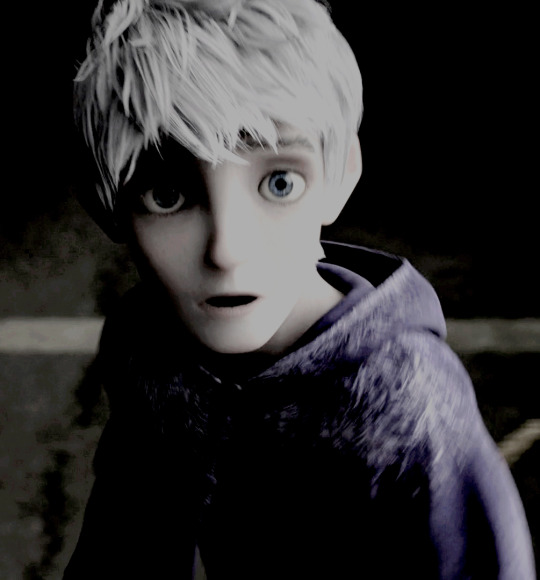
I believe it’s because even though he’s come to terms with the fact that he and Pitch are different and that Pitch’s actions can’t be excused, he still emphasizes with him. This is further proven by these two other looks that he gives him:

On the left, it’s the look Jack gives Pitch when Jamie runs through him ( you can see the concern and just the knowing about how bad it feels to be walked through and unbelieved. ) and the right is when Pitch is dragged away by his nightmares. He understands that Pitch is beyond saving, but at the same time… you can see that Jack wants to try. He knows that he could of very well been Pitch, and even if he accepts his position as Guardian now, he wants to reach out and actually try to help Pitch.
Even when Jack felt animosity towards Pitch, underneath is just a desperate need to be able to reach out and help him; to pull him out of those shadows and to be able to give him the companionship that Jack himself had longed for. Honestly, if we ever get a sequel in our lifetime, I need them to show something of the sort. Cause Jack connects more to Pitch than he does towards any of the Guardians.
#; ( headcanon tag )#long post tw#// this shit is about 3 pages on word i'm so sorry#i feel like it's 90% useless rambling/recaping and 10% actual analysis but#here xD <3
24 notes
·
View notes
Text
Detroit: Become Human - Funny story...
Okay... so Story Time because my friends pointed this out and it’s been fucking with me ever since.
This is the story of how I kinda...sorta wrote/ predicted parts of DBH about...2 years ago. Just hear me out...okay?
So this all started similarly to how DBH started, with that dope-ass demo back in 2012. My 15 year old self became enthralled in it, much like I am now enthralled in the full game. I’ve always loved story telling and had a sort of soft spot for digital modelling. So that demo was a masterpiece to me, it had a great concept and beautiful design. It was a short obsession but it had an impact.
And that was the last piece of news I’d ever hear about it until a month after they released the full game. I remember hearing some rumour that they weren’t gonna make it a full game or something and left it at that. I didn’t hear anything about it’s coverage at E3 because while I like video games, I become absorbed in different obsessions from time to time.
And two years ago I was obsessed with Dungeons and Dragons, the thought of creating a whole world and having others enter it was fascinating. And while I tried to create worlds from scratch, I had a problem.
I had never been too interested in Fantasy things, I liked fantasy characters but tended to focus on too much of the political aspect of fantasy worlds and not the fun stuff like slaying dragons and stuff.
The return of an old obsession began to try and take my focus off of DnD but I wasn’t ready to let it go yet.
So I merged them, DnD didn’t have to be fantasy, I didn’t have to invent a world from scratch and luckily my old obsession had a world pre-designed. Marvel, specifically MCU had a treasure trove of lore and I could take a number of rules from DnD 5e and tweak them to suit the change in genre.
So I started off with a one shot campaign, set in a HYDRA base. My three player characters would be playing themselves and making decision based on how they’d react. They ‘woke up’ in a white plastic robot body. Singular, all three were in the same body, looking through the same eyes and rolling for control over said robot body. It was entertaining to watch them figure out what they hell was going on organically. They quickly met the first NPC an old doctor/sciencist who was a very nervous person. He explained that they’d all been loaded into the same body by accident and that he was just testing out that his creation (the body itself) was working correctly. So my players decided to answer the jumpy doctors questions and let one of them take control as the doctor got them to walk around while still connected to the computer around them by a bunch of wires connected to the back of their neck. The doctor left the room briefly (to report to his superiors) before returning and calmly explaining that he’d need to shut them down before making the rest of the bodies. Yes, this was heavily inspired by the demo but the players didn’t notice or didn’t comment on it at the time. And they genuinely really like the one-shot. So, I started writing more, growing the campaign and expanding my list of NPCs.
Now I know what you’re thinking, “wow...you ripped off the demo and think that counts as writing a whole game” but I never said I wrote the whole story, that would be mental. But as both me and my players have pointed out, there is a large number of similarities which is spooky because as i already stated I didn’t know anything about DBH until almost a month after it’s full release.
The first and most profound is Amanda. Or my Amanda, who’s called Ruth LaRue. Dr. Ruth LaRue, the trio’s psychologist/co-creator who acts pleasant (too pleasant) towards them...unless they disobey or resist their training to become Hydra Assets. One of my players is rebellious and LaRue has tried to manipulate and coldly threatened him as a result. While another obeys and gets praise and rewards as a result. Also she looks like Amanda (a character i didn’t even know existed), I originally described her as the same race, hairstyle, though slightly younger. And then I drew her (poorly) for my players to get a better idea of how she looked and Jesus Christ they look the same.
Another is the fact that I have three player characters. There was a possible fourth player but work and life made it difficult for her to be a part of the game. Also my players are two boys and one girl. And while that’s all freaky, their characters appearances/designs are extra weird. Originally, after all getting their own bodies, they all had white plastic robot bodies, all male design (which female player wasn’t happy about because she missed her boobs). The only way to tell them apart was voice and the nervous doctor had given them different coloured eyes. Creating robots came with the challenge of figuring out how their bodies worked (one player was particularly interested in this). Once again inspiration partly came from the Kara demo, the robots are a water (blue liquid) based system, a pump (heart) transports water, which is collect in bags (lungs) through the robots absorbing moisture in the air (through breathing), around the machine frame (body). The water has two purposes, to thinly coat the white plastic casing (skin), which allowed the robot to feel pressure but not texture and also to keep the pump valves going, which creates the energy the machines (players) are run on. After learning that the white plastic version could be easily broken during training, the nervous doctor created a second batch of models, this time made out of metal (female asked for a female body and therefore the doctor gave her a large dent in her chest plate, she was pleased). They then get a new model, ones that are designed to blend in with humans. And this is where this section gets super freaky. The player got no say in how they looked because in game they wouldn’t.
The female is the shortest model as well as they palest model with loads of freckles, the similarities with Kara stop there but the female player has been gifted a female kitten (thankfully named Cookie, not Alice) as the reward and is quite paranoid about it being taken off her or harmed (calm down, I haven’t hurt the cat...yet).
One of the males is only slightly more tanned than the female with considerably less freckles and markings. He’s the tallest and the player has been surprisingly obedient, only "failing” when he doesn’t understand what’s happen or doesn’t think something will benefit HYDRA. Because of this he’s been promoted to team leader by the powers that be. He’s logical and is usually thinking about training and what’s going on in the NPCs’ heads.
Lastly we have the second male who looks southern European (Spain, Italy, Greece and could probably pass as Mexican but the story is set in central Europe) so a different ethnicity/race to the other two. This is the rebellious player who generally plays pranks, cracks jokes and says “fuck you” to authority. Like I said before as a result, he tends to be the one looked down on and oppressed by the powers that be. He generally has a very clear line which he won’t cross no matter what and is willing to stand up if he views something as drastically wrong (refused to hurt his friends or pick up a gun).
Also when asked what they wanted to be called (I.e What’s your name?) The players decided to to sick to what the nice nervous doctor had designated them, i.e the colours of their eyes. Rebellious is Red. Logical is Blue and Female is Purple (name later changed to Violet).
Next is three more NPCs, who have enough in common with the DBH characters to mess with me.
The nervous doctor, Dr. Thomas Thornley, while having a completely different personality, has formed relationships like Hank. A number of the players refer to him as “Daddy Thornley”, not to his face but when talking to each other in game. And most disturbingly the rebellious player has implied on several occasions that he “ships” the logical male player with father-figure Thornley, jokingly of course. And while in the beginning Thornley may have viewed the robots as a project or experiment, he now appears quite protective and fond of them. Even displaying discomfort when one is broken or completely destroyed.
Their combat and gun trainer, Agent Woodrow who is ex-military and treats the robots exactly like you’d expect he would, like machines. He could either be Gavin or Captain Allen but either way he’s a genuine aggressor and dislikes/hates the robots.
The Head of Hydra, Director Malachi Storm who has an air of mystery around him and commands any room he enters. He’s considerable less creepy than Kamski but is an “all-knowing, all-powerful” character. Also I guess I’m technically also Elijah Kamski (a.k.a GOD) and my players pointed out that i have his sadistic, power hungry play style (thanks, guys).
Lastly is a few game mechanics and events i put in the game. The players have always been able to telepathically talk to one another, they can also transfer images to each other. If broken beyond repair (i.e Killed) they now get automatically rebuilt, similar to Connor. I made LaRue give them a morality test which was mostly the “Track dilemma” which is similar to both the driver-less car AIs and the Kamski test. I actually did the motherfucking Kamski test with one or two of my players (but with humans instead of androids lol). Also the players believe they’re alive (which technically they are). They’ve literally been give zero context as to how they are in robot bodies in the MCU, specifically they’re last memories before the start of the game are of going to sleep in their beds in the real world. They are literally three robots walking around stating that they’re alive.
And yes, I realise that Cage took shit from other movies but it have seen any of those movies so...:P
If I looked hard I could probably find more scary comparisons but a) I don’t particularly want to show all my cards, in case my players read this post, and b) I appear to have written a fucking TED talk out of what was supposed to be a short funny story.
#dbh#dbh connor#dbh kara#dbh markus#dbh hank#dbh amanda#dbh kamski#dbh everyone#custom dnd#dnd shenanigans#story time#freaky#what is life#thanks for coming to my ted talk
8 notes
·
View notes
Text
Brian D. Earp, The unbearable asymmetry of bullshit, HealthWatch Newsletter (February 2016)
Introduction
Science and medicine have done a lot for the world. Diseases have been eradicated, rockets have been sent to the moon, and convincing, causal explanations have been given for a whole range of formerly inscrutable phenomena. Notwithstanding recent concerns about sloppy research, small sample sizes, and challenges in replicating major findings—concerns I share and which I have written about at length — I still believe that the scientific method is the best available tool for getting at empirical truth. Or to put it a slightly different way (if I may paraphrase Winston Churchill’s famous remark about democracy): it is perhaps the worst tool, except for all the rest.
Scientists are people too
In other words, science is flawed. And scientists are people too. While it is true that most scientists — at least the ones I know and work with — are hell-bent on getting things right, they are not therefore immune from human foibles. If they want to keep their jobs, at least, they must contend with a perverse “publish or perish” incentive structure that tends to reward flashy findings and high-volume “productivity” over painstaking, reliable research. On top of that, they have reputations to defend, egos to protect, and grants to pursue. They get tired. They get overwhelmed. They don’t always check their references, or even read what they cite. They have cognitive and emotional limitations, not to mention biases, like everyone else.
At the same time, as the psychologist Gary Marcus has recently put it, “it is facile to dismiss science itself. The most careful scientists, and the best science journalists, realize that all science is provisional. There will always be things that we haven’t figured out yet, and even some that we get wrong.” But science is not just about conclusions, he argues, which are occasionally (or even frequently) incorrect. Instead, “It’s about a methodology for investigation, which includes, at its core, a relentless drive towards questioning that which came before.” You can both “love science,” he concludes, “and question it.”
I agree with Marcus. In fact, I agree with him so much that I would like to go a step further: if you love science, you had better question it, and question it well, so it can live up to its potential.
And it is with that in mind that I bring up the subject of bullshit.
Bullshit in science
There is a veritable truckload of bullshit in science.¹ When I say bullshit, I mean arguments, data, publications, or even the official policies of scientific organizations that give every impression of being perfectly reasonable — of being well-supported by the highest quality of evidence, and so forth — but which don’t hold up when you scrutinize the details. Bullshit has the veneer of truth-like plausibility. It looks good. It sounds right. But when you get right down to it, it stinks.
There are many ways to produce scientific bullshit. One way is to assert that something has been “proven,” “shown,” or “found” and then cite, in support of this assertion, a study that has actually been heavily critiqued (fairly and in good faith, let us say, although that is not always the case, as we soon shall see) without acknowledging any of the published criticisms of the study or otherwise grappling with its inherent limitations.
Another way is to refer to evidence as being of “high quality” simply because it comes from an in-principle relatively strong study design, like a randomized control trial, without checking the specific materials that were used in the study to confirm that they were fit for purpose. There is also the problem of taking data that were generated in one environment and applying them to a completely different environment (without showing, or in some cases even attempting to show, that the two environments are analogous in the right way). There are other examples I have explored in other contexts, and many of them are fairly well-known.
An insidious tactic
But there is one example I have only recently come across, and of which I have not yet seen any serious discussion. I am referring to a certain sustained, long-term publication strategy, apparently deliberately carried out (although motivations can be hard to pin down), that results in a stupefying, and in my view dangerous, paper-pile of scientific bullshit. It can be hard to detect, at first, with an untrained eye—you have to know your specific area of research extremely well to begin to see it—but once you do catch on, it becomes impossible to un-see.
I don’t know what to call this insidious tactic (although I will describe it in just a moment). But I can identify its end result, which I suspect researchers of every stripe will be able to recognize from their own sub-disciplines: it is the hyper-partisan and polarized, but by all outward appearances, dispassionate and objective, “systematic review” of a controversial subject.
To explain how this tactic works, I am going make up a hypothetical researcher who engages in it, and walk you through his “process,” step by step. Let’s call this hypothetical researcher Lord Voldemort. While everything I am about to say is based on actual events, and on the real-life behavior of actual researchers, I will not be citing any specific cases (to avoid the drama). Moreover, we should be very careful not to confuse Lord Voldemort for any particular individual. He is an amalgam of researchers who do this; he is fictional.
Lord Voldemort’s “systematic review”
In this story, Lord Voldemort is a prolific proponent of a certain controversial medical procedure, call it X, which many have argued is both risky and unethical. It is unclear whether Lord Voldemort has a financial stake in X, or some other potential conflict of interest. But in any event he is free to press his own opinion. The problem is that Lord Voldemort doesn’t play fair. In fact, he is so intent on defending this hypothetical intervention that he will stop at nothing to flood the literature with arguments and data that appear to weigh decisively in its favor.
As the first step in his long-term strategy, he scans various scholarly databases. If he sees any report of an empirical study that does not put X in an unmitigatedly positive light, he dashes off a letter-to-the-editor attacking the report on whatever imaginable grounds. Sometimes he makes a fair point—after all, most studies do have limitations—but often what he raises is a quibble, couched in the language of an exposé.
These letters are not typically peer-reviewed (which is not to say that peer review is an especially effective quality control mechanism); instead, in most cases, they get a cursory once-over by an editor who is not a specialist in the area. Since journals tend to print the letters they receive unless they are clearly incoherent or in some way obviously out of line (and since Lord Voldemort has mastered the art of using “objective” sounding scientific rhetoric to mask objectively weak arguments and data), they end up becoming a part of the published record with every appearance of being legitimate critiques.
The subterfuge does not end there.
The next step is for our anti-hero to write a “systematic review” at the end of the year (or, really, whenever he gets around to it). In it, He Who Shall Not Be Named predictably rejects all of the studies that do not support his position as being “fatally flawed,” or as having been “refuted by experts”—namely, by himself and his close collaborators, typically citing their own contestable critiques—while at the same time he fails to find any flaws whatsoever in studies that make his pet procedure seem on balance beneficial.
The result of this artful exercise is a heavily skewed benefit-to-risk ratio in favor of X, which can now be cited by unsuspecting third-parties. Unless you know what Lord Voldemort is up to, that is, you won’t notice that the math has been rigged.
So why doesn’t somebody put a stop to all this? As a matter of fact, many have tried. More than once, the Lord Voldemorts of the world have been called out for their underhanded tactics, typically in the “author reply” pieces rebutting their initial attacks. But rarely are these ripostes — constrained as they are by conventionally miniscule word limits, and buried as they are in some corner of the Internet — noticed, much less cited in the wider literature. Certainly, they are far less visible than the “systematic reviews” churned out by Lord Voldemort and his ilk, which constitute a sort of “Gish Gallop” that can be hard to defeat.
Gish Gallop
The term “Gish Gallop” is a useful one to know. It was coined by the science educator Eugenie Scott in the 1990s to describe the debating strategy of one Duane Gish. Gish was an American biochemist turned Young Earth creationist, who often invited mainstream evolutionary scientists to spar with him in public venues. In its original context, it meantto “spew forth torrents of error that the evolutionist hasn’t a prayer of refuting in the format of a debate.” It also referred to Gish’s apparent tendency to simply ignore objections raised by his opponents.
A similar phenomenon can play out in debates in medicine. In the case of Lord Voldemort, the trick is to unleash so many fallacies, misrepresentations of evidence, and other misleading or erroneous statements — at such a pace, and with such little regard for the norms of careful scholarship and/or charitable academic discourse — that your opponents, who do, perhaps, feel bound by such norms, and who have better things to do with their time than to write rebuttals to each of your papers, face a dilemma. Either they can ignore you, or they can put their own research priorities on hold to try to combat the worst of your offenses.
It’s a lose-lose situation. Ignore you, and you win by default. Engage you, and you win like the pig in the proverb who enjoys hanging out in the mud.
Conclusion
As the programmer Alberto Brandolini is reputed to have said: “The amount of energy necessary to refute bullshit is an order of magnitude bigger than to produce it.” This is the unbearable asymmetry of bullshit I mentioned in my title, and it poses a serious problem for research integrity. Developing a strategy for overcoming it, I suggest, should be a top priority for publication ethics.
Footnote
There is a lot of non-bullshit in science as well!
References
Ioannidis JP. Why most published research findings are false. PLoS Medicine 2005;2(8):e124
Button KS et al. Power failure: why small sample size undermines the reliability of neuroscience. Nature Reviews Neuroscience 2013;14(5):365-376
Open Science Collaboration. Estimating the reproducibility of psychological science. Science 2015;349(6251):aac4716
Earp BD, Trafimow D. Replication, falsification, and the crisis of confidence in social psychology. Frontiers in Psychology 2015;6(621):1-11
Earp BD et al. Out, damned spot: can the “Macbeth Effect” be replicated? Basic and Applied Social Psychology 2014;36(1):91-98
Earp BD. Psychology is not in crisis? Depends on what you mean by “crisis.” Huffington Post, 2 Sept 2015 http://www.huffingtonpost.com/brian-earp/psychology-is-not-incrisis_b_8077522.html
Earp BD, Everett JAC. How to fix psychology’s replication crisis. Chronicle of Higher Education, 25 Oct 2015 http://chronicle.com/article/How-to-Fix-Psychology-s/233857
Earp BD. Open review of the draft paper, “Replication initiatives will not salvage the trustworthiness of psychology” by James C Coyne. BMC Psychology, 2016 [in press] https://www.academia.edu/21711738/Open_review_of_the_draft_paper _entitled_Replication_initiatives_will_not_salvage_the_trustworthiness_of_psychology_by_James_C._Coyne
Everett JAC, Earp BD. A tragedy of the (academic) commons: interpreting the replication crisis in psychology as a social dilemma for earlycareer researchers. Frontiers in Psychology 2015;6(1152):1-4.
Trafimow D, Earp BD. Badly specified theories are not responsible for the replication crisis in psychology. Theory & Psychology 2016; [in press] https://www.academia.edu/18975122/Badly_specified_theories_are_not _responsible_for_the_replication_crisis_in_social_psychology
Earp BD. Can science tell us what’s objectively true? The New Collection 2011;6(1):1-9
Nosek BA et al. Scientific utopia II. Restructuring incentives and practices to promote truth over publishability. Perspectives on Psychological Science 2012;7(6):615-631
Rekdal OB. Academic urban legends. Social Studies of Science 2014;44(4):638-654
Peterson D. The baby factory: difficult research objects, disciplinary standards, and the production of statistical significance. Socius 2016 [in press] http://srd.sagepub.com/content/2/2378023115625071.full
Duarte JL et al. Political diversity will improve social psychological science. Behavioral and Brain Sciences 2015 [in press] http://emilkirkegaard.dk/en/wp-content/uploads/Political-DiversityWill-Improve-Social-Psychological-Science-1.pdf
Ball P. The trouble with scientists. Nautilus, 14 May 2015 http://nautil.us/issue/24/error/the-trouble-with-scientists
Marcus G. Science and its skeptics. The New Yorker, 6 Nov 2013 http://www.newyorker.com/tech/elements/science-and-its-skeptics
Earp BD. Mental shortcuts [unabridged version]. The Hastings Center Report 2016 [in press] https://www.researchgate.net/publication/- 292148550_Mental_shortcuts_unabridged
Ioannidis JP. Limitations are not properly acknowledged in the scientific literature. Journal of Clinical Epidemiology 2007;60(4):324-329
Earp BD. Sex and circumcision. American Journal of Bioethics 2015;15(2):43-45
Bundick S. Promoting infant male circumcision to reduce transmission of HIV: A flawed policy for the US. Health and Human Rights Journal Blog, 31 Aug 2009 http://www.hhrjournal.org/2009/08/promoting-infant-malecircumcision-to-reduce-transmission-of-hiv-a-flawed-policy-for-the-us/
Ploug T, Holm S. Conflict of interest disclosure and the polarisation of scientific communities. Journal of Medical Ethics 2015;41(4):356-358.
Earp BD. Addressing polarisation in science. Journal of Medical Ethics 2015;41(9):782-784
Smith R. Peer review: a flawed process at the heart of science and journals. Journal of the Royal Society of Medicine 2006;99(4):178-182
Smith R. Classical peer review: an empty gun. Breast Cancer Research 2010;12(S4):1-4
Roland MC. Publish and perish: hedging and fraud in scientific discourse. EMBO Reports 2007;8(5):424-428
Scott E. Debates and the globetrotters. The Talk Origins Archive. 1994 http://www.talkorigins.org/faqs/debating/globetrotters.html
Brandolini A. The bullshit asymmetry principle. Lecture delivered at XP2014 in Rome and at ALE2014 in Krakow. 2014 http://www.slideshare.net/ziobrando/bulshit-asymmetry-principlelightning-talk.
4 notes
·
View notes
Video
youtube

buy research paper
About me
Online Shopping And E
Online Shopping And E The main wrestle faced by most writers is the way to organize the knowledge introduced in the paper, which is one purpose an overview is so helpful. However, do not forget that the define is simply a information and, when writing, you may be flexible with the order by which the knowledge and arguments are offered. The program we use finds textual similarities with open sources on the Internet and helps us to eliminate them. You can also double-check if we’ve made your best option for your paper by ordering the writer’s samples. These are three random pages from papers beforehand accomplished by the author that can show the writer’s type. Customer centricity is the nerve center for any company to thrive. Therefore, we need to analyze whether or not the company has an independent group for handling buyer grievances or not. This will assist us to identify how serious the corporate is in terms of customer satisfaction. Independent service surveys similar to the net promoter strategy is an ideal device to measure customer-centricity. Writing a dissertation and getting the doctorate stays the dream of many individuals who pursue educational studies, however the task isn't simple as there are numerous obstacles in the way in which. The first step of the method is to decide on a topic for a research research and provide a research proposal. For a dissertation or thesis, you have to do groundbreaking research while utilizing earlier research on the subject. To accomplish this purpose, the student wants to use each major and secondary types of research similar to interviews, the use of questionnaires, and so forth. In addition to that, you need to spend a lot of time that you simply don’t have in your busy life-style. You can do all this or just hire a dependable tutorial writing service to finish your paper with just a click on of the mouse and make the only option. And it's making you anxious and you need help from skilled essay writers to resolve quality issues associated to plagiarism and other points. With such a packed schedule essentially the most complex assignments can come out of the blues and catch you abruptly. Instead of battling it, the brightest students choose to buying research papers on-line. The best answer for this dilemma is to search for someone who would write my dissertation while maintaining the prime quality required by the tutorial committee. As a student, you already lead a busy lifestyle, and yet, you should produce a really excessive stage of the research study in this context, so, most frequently, your first response could be to seek professional help. Many people fear about having their info exposed. For teachers, specifically, this could be extremely damaging to their career. That’s why every writer must comply with non-disclosure – neither they nor the enterprise itself, are allowed to violate customer information in any way. When you buy a paper on-line, you’re buying the full rights to that paper – it can by no means be used again, and for all intents and purposes, it's yours. The privateness should also be taken significantly and how well it's maintained. For instance, whether a non-disclosure settlement is signed or not, the repercussions and actions are taken if the privacy is violated. We’ve developed a complete and clear cash-back assure so that you can feel safe if you purchase custom analysis paper from us. We assure to reimburse you when you ordered some companies and we failed to offer them. For instance, should you’ve paid for a author of a higher category and we couldn’t discover you one, we'll give your a refund, as well as when you’ve accidentally paid for one order twice. To make sure our writers formatted the citations the right method, we double-check papers with our plagiarism-detection software program earlier than we deliver them to you. Quality assurance specialists make sure that papers written by our professional writers are one hundred% unique. Our skilled writers are great when they're left to work independently, but in addition they understand that when particular steering is given, it’s their job to comply with it. Their primary aim is to fulfill the expectations of the shopper and to help them succeed with the educational writing problem. Your life as a student is all the time filled with exercise. The schedule at school could be very tight since you must read for different units, research in your project, put together for exams, and go to events.
0 notes
Link
Rethinking the Heteronormative Lens on Matrimony
We've all heard the cliche "Men are from Mars and women are from Venus." Stereotypes like this not only take a cisnormative view of the world they also suggest that high divorce rates are caused by the complicated differences between men and women.
But if this is the reason that heterosexual marriages fail, then couldn’t we logically conclude that same-sex marriages are destined to succeed?
Studies from the Gottman Institute, Masters and Johnson and San Francisco State University reveal that, by and large, heterosexual and same-sex marriages face very similar challenges. They also show that same-sex spouses share two key advantages over their heterosexual counterparts: more regulated conflict and greater levels sexual connectivity.
Despite the social stigma same-sex marriages face (or perhaps because of it) gay and lesbian couples tend to bounce back from conflict more quickly and enjoy a greater sense of equity in their relationship. Of course, same-sex marriage is still marriage. Expectations go unmet. Power struggles arise. Bonds of trust get broken.
However, when you understand the unique strengths you both bring to the table and use the "tools" from your own toolbox to navigate those challenges, you can reject heteronormative ideals and wield your own unique strengths to your advantage. Consider the three guidelines below for same-sex marriage success, including advice on how to find the right therapist to join you along your journey toward marital bliss.
Harness the Power of Humor

After conducting a twelve-year study of 21 gay and 21 lesbian couples, marriage and relationship expert Dr. John Gottman, alongside Dr. Robert Levenson, discovered that straight, gay and lesbian couples experience very similar relationship ups and downs. Overall, they enjoy the same levels of marital satisfaction and engage in conflict over comparable matters.
However, there was one key strength displayed by same-sex couples that was missing among their heterosexual counterparts: humor.
In the “heat of the moment,” Gottman and Levenson observed that same-sex couples often responded more gently and less defensively to their spouses or partners. They were also more likely to employ humor or affection in the midst of conflict and, perhaps most importantly, these gestures were most likely to be received positively by their partners.
This is a stark contrast to the patterns Gottman witnessed among heterosexual couples, and he attributes this dichotomy to a greater sense of equity in gay and lesbian relationships.
"The difference in these control-related emotions suggests that fairness and power-sharing between the partners is more important and more common in gay and lesbian relationships than in straight ones,” Gottman explains.
Gottman’s research demonstrates the greater impact that positive words of affirmation have on gay and lesbian partners. They were also less likely to experience lasting hurt or wounds from negative comments they received from their partner, lessening the harm that comes from negative sentiment override, which can be so damaging to straight marriages.
One possible explanation for this difference is the level of adversity gay and lesbian partners face within society. According to our own Intake Coordinator and Couples Therapist, Beth Agostino-Evans, LICSW, "Same-sex couples have learned what is really important to them and have become better able to navigate the challenges within their relationships and choose how to spend their energy."
Have you found that to be true in your relationship or marriage? If so, lean in. Understand the power that affection and humor can play in releasing tension, and enjoy the freedom that comes from “letting go” of hurtful words and embracing the positive gestures of your partner or spouse.
Reject Heteronormative "Rules"
Another key finding to come out of Gottman and Levenson's twelve-year study is the contrasting comfort levels with sex between same-sex and straight couples.
"Most heterosexual couples in the United States are very embarrassed talking about sex, even if there is no camera around. They are also very indirect in what they ask for," says Gottman. "Gay and lesbian couples, on the other hand, are very open and direct in talking about what they need sexually."
This is a key distinction to make before any same-sex couple embarks on marriage or couples therapy, as their mindset, and even that of their therapist, could be influenced by the "rules" of heteronormative culture.
"It's important to forget everything you know about heteronormative sexuality," says Joe Kort, Ph.D., a leading expert on relationships and GLBTQ couples therapy. "It's just not going to look that way [for same-sex couples]."
According to Kort, author of Gay Affirmative Therapy for the Straight Clinician, relational patterns that might seem pathological or unhealthy in a heteronormative context are completely natural and healthy within a same-sex relationship.
What does this mean for the same-sex spouse? Understand that your desire for intercourse, romance and connection can vary greatly from what you see in TV, movies or even what you expect of yourself and your spouse. Also, keep in mind that your own therapist might be bringing heteronormative expectations to the table.
Whenever you can, try to encourage yourself, your spouse and your therapist to view your own romantic patterns through an open, objective lens.
Don't Sacrifice Self-Acceptance

Unlike straight couples, same-sex spouses more often lack support from their extended families, communities or work colleagues. According to Agostino-Evans, it's important for therapists to recognize the unique challenges this brings into the marriage.
"In many couples who come to us, one or both partners have faced criticism, adversity, and shame around their identity," says Agostino-Evans. "Often, these experiences fuel them toward making positive changes in their GLBTQ community. However, there is still often work to be done, both within the relationship and on an individual level.”
Many of the couples Beth meets with have also experienced the rollercoaster of emotion that is often associated their journey toward having children. When a GLBTQ person decides to become a parent it is not a decision that they arrive to lightly. It is a decision that is made out of love and with the knowledge that they face more of an uphill battle to achieve parenthood than most heterosexual couples.
During the journey toward parenthood, many same-sex couples "turn towards" each other for love and support. However, there are still stressful times filled with conflict, and finding the right therapist can provide them with hope and healing.
Thankfully, being GLBTQ is largely embraced and celebrated in the Pioneer Valley, that is not the case for many areas of the US or world. As Agostino-Evans puts it, it is imperative that the therapist is able to provide psychoeducation to help their clients navigate their journey.
This work includes includes helping you move towards greater self-acceptance, feeling proud of yourself, and becoming at peace with your life journey.
Above all, seek the help of therapists who have the most up-to-date training and knowledge, therapists who can empower and educate you through these larger identity-driven dilemmas.
At NCCT, we are well-versed in the unique dynamics of same-sex marriage. Our therapists are passionate about breaking through the barriers of heteronormative culture to provide you and your spouse with the research-based, tailored support you need.
Our therapists also employ today’s leading couples therapy methodologies, such as Emotionally Focused Therapy and Gottman Method. We have weekly couples therapy options, in addition to marriage retreats, premarital counseling retreats and couples therapy weekends for those with busier schedules.
Call NCCT to learn we can help you deepen the levels of intimacy you share with your spouse to strengthen and solidify your bond.
#Emotionally Focused Therapy#Gottman Method#Couples Retreats#Couples Therapist#Couples Counseling#Private Couples Retreat#Marriage Therapy#Marriage Counseling#Marriage Retreats#Premarital Counseling Retreats
0 notes
Text
Spin Rewriter Review – The Ultimate Article Spinner Rewriter?
Hundreds of web 2.0 properties to link to and thousands of plagiarism-free articles to write; that’s the workload that internet marketers usually face. The solution? There are two ways around the problem. The first one is to do the work manually and the second, to employ the help of an article rewriter tool. Often, website owners and SEO experts choose the latter. Article rewriting tools provide instant content and with minimal input. One such software is Spin Rewriter, a content writing program that has won the hearts of not one or two internet users, but more than 125, 000 worldwide.
What’s it that makes Spin Rewriter so different from the others? Or, to put it in a better way, more superior when compared to similar software available today? I wrote this Spin Rewriter review to answer that question. Read on and find out why you should or shouldn’t use the tool, the costs involved, and how you can use it to advance your SEO efforts. But before I bring you the goods (and the bad) of Spin Rewriter, a question that many website owners and digital marketers usually ask: why would one need an article rewriter in the first place? Here is why.
youtube
The Dilemma that Internet Marketers

Face
Ever since online entrepreneurs discovered the value of backlinks to a website’s ranking, the need to create many of them became an essential part of SEO. More places to link a website to meant more traffic, higher profits, and a healthier business. But then, it also means more content to be written. In most cases, it can be hundreds of articles if not thousands. The problem is further compounded by the fact that search engines don’t take article duplication lightly, and that a website can be penalized for that.
That leaves you with two options. To create unique articles manually and waste time or, use an article spinning software and generate many different pieces automatically. The second option offers more benefits, of course. Apart from making the task easier for you, it shortens the time to finish it. However, the challenge to create backlinks does not only involve choosing the best way to do it. It also has a lot to do with the type of article spinning software you choose. Some will perform impressively while others produce terrible articles that do not read well. That’s why one article rewriter tool will improve backlink SEO and another harm efforts.
The software you go for needs to be smart enough to create near human articles, flexible enough to support different other SEO tools, and easy enough to use. Not many can assure you of all those qualities. And if you’re lucky to find one, the price is often above the roof and beyond what many can comfortably afford. That ends up defeating the reason to use an article spinner in the first place, that’s to bring down the cost to produce new and plagiarism-free content. Of all the article rewriting tools I have had the change to assess, Spin Rewriter takes the trophy. The reasons are many as I will explain later. First:
The Spin Rewriter Software: What is it?
Spin Rewriter, in simple terms, is an online tool that spins articles. The software has been available since the launch of its first version in 2011. Over the years, slightly over 125,000 people have registered and paid to use the rewriter. That’s according to the statistics provided by the company that owns the software. The program has been updated several times, too, with the aim to make it even more useful. But has it been of use to those looking for the best article rewriter tool for their backlink building projects? I would says yes, based on the mostly positive reviews that the software has been receiving online. If you’ve often wondered what makes users rate this awesome tool highly, have a look at what features it offers.
The Difference Between Spin Rewriter and Other Article Rewriter Software
Word, Sentence and Paragraph Rewriting
This should be the main reason why many choose Spin Rewriter for the task to rewrite articles. The software doesn’t just

replace random words with only a few synonyms; it rewrites the words, sentences, and paragraphs to achieve a level of uniqueness you never thought possible. It comes with built-in intelligence that understands the meaning of words in sentences and the context they’re used in based on the topic of the paragraphs. It then applies that to carefully select what words to use as replacements. That results in a new sentence but which retains the intended meaning.
The current version of Spin Rewriter can even recognize and intelligently change tenses to offer more uniqueness to the article. Users of the software have always reported spinning that achieves ENL levels of language, which is what every digital marketer happens to be looking for. The database of the synonyms to use is also immense, and the creators of the software keep checking to see that the algorithms for this don’t perform incorrectly. That’s, that the built-in AI doesn’t pick up a wrong consistency to choose words and phrases.
Fewer and Easy Steps to Produce Content
It doesn’t take you long to get your articles ready. In fact, the software requires only a few seconds to produce as many as 500 different articles from a single copy. The process involved is also simple, with fewer steps than what you get with many other rewriting tools. The dashboard itself is well designed, with only the important tabs in place.
Despite being a breeze to use, the developers of Spin Rewriter provide video and text explanations on how to navigate the software as you go about rewriting your articles. The theories are straightforward, so simple that you won’t spend any amount of time studying them. Couple that with the intuitive and fast interface of the software, and you’re bound to get started within the first few minutes of registering.
Online Usage
You do not need to download or install anything- you operate the software purely from a browser. That means you can access Spin Rewriter using virtually any device that can access the internet from smartphones, tablets to desktops and laptops. Besides the wide range of devices that can operate Spin Rewriter, you can use it anywhere. That would not be possible if you had to download and install the program on a single device. The advantages of that are many, the main one being that you can manage your content creation even when on the go.
Support for Many Different SEO tools
Spin Rewriter integrates into almost every type of SEO tools that’s popular with users today. Upon subscribing to use this software, you’re given an API key that you can use on those other tools alongside your credentials. I find the seamless integration a plus for Spin Rewriter. It means you can enjoy the benefits of the advanced features and the top-notch AI of the software throughout your SEO projects even when using different tools.
Access to Big Content Articles
With Spin Rewriter, you don’t need to worry about finding seed articles to rewrite. The software has access to the over more than 126, 000 Big Content articles directory. What does that mean for you? That there will be many different articles for the same topic to rewrite and that the level of uniqueness is guaranteed to be higher than what you would get with other rewriting programs. With plagiarism and duplication of content being a serious issue with search engines, that alone should make you want to use Spin Rewriter for the articles to post to your web 2.0 resources.
Copyscape and MS Word Integration
While still on the issue if content duplication, you will be pleased to know that Spin Rewriter allows for integration with the plagiarism checker tool, Copyscape. That enables you to check your articles for uniqueness before sending them out, especially those that involve tier 1 websites. Spin Rewriter also integrates Microsoft word to check for errors in the spellings and grammar. That comes useful if the seed article you provided comes with grammar and spelling issues and you want it corrected before it can be rewritten.
Image and Video Support
Some of your rewritten articles will need videos or images attached. Spin Rewriter does that- in a fast and intelligent way. It comes with an inbuilt system dedicated for that and you need no third party application to do it. What I find amazing about this feature is that you don’t even have to worry about where to place the images or videos in the articles; the software does that for you automatically.
A Look Inside Spin Rewriter
As we have already seen, the software is one of the most straightforward to use, with a user-friendly interface and just a short process to have content rewritten. Here is the basic procedure.
Step 1: copy and paste your seed article into the editor window. If you don’t have one ready, the software can find it for you.
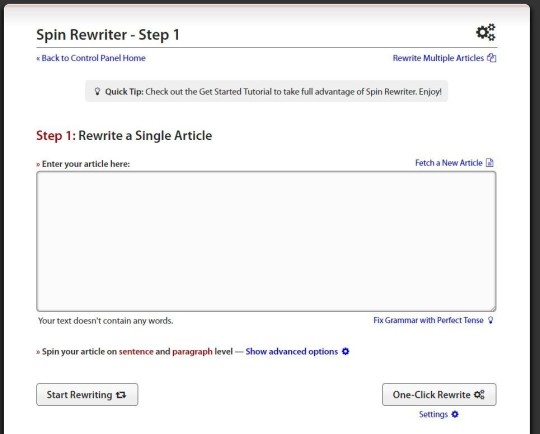
Step 2: instruct Spin Rewriter to spin the article. The software finds suitable words to use from it’s huge database, but you can choose to customize the process and have it use your selected synonyms to rewrite the article.There’s the option for that.
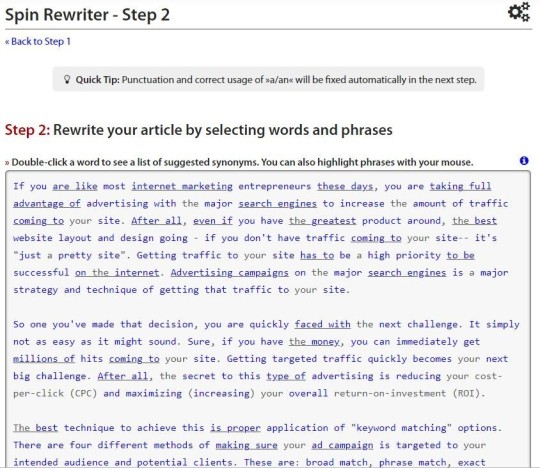
Step 3: hit the button that says “export”. The software then generates hundreds of different articles- as many as 1000. That whole process takes only a few minutes to complete and you have brand new content for each of the sites you intent to link to for traffic and ranking.
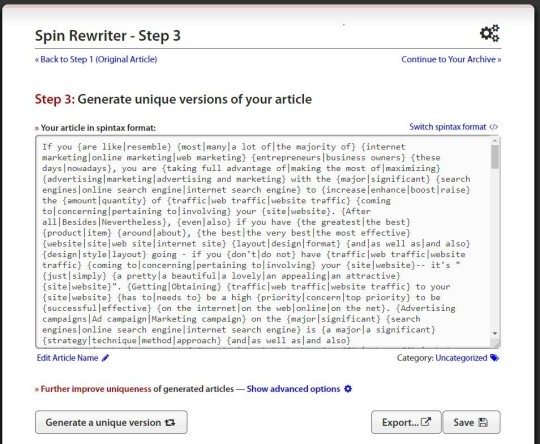
There are other features and functions on the Spin Rewriter dashboard. Each has its benefit in the article rewriting process and there are plenty of tutorials that guide you on how to use them. Many of then don’t need explanations, though, and you will easily get going even without any guide.
What is the Cost to Use Spin Rewriter?
The software comes out as an affordable article rewriter when compared to many others
on the market. There are three options to choose from- monthly, yearly, and a lifetime subscription. Here are the figures so you can do your math and determine which package suits you best.
Monthly- $49
Monthly- $197
Lifetime- $497

Can You Test it First?
Of course, yes. Spin Rewriter offers you five days to try out its capability to spin articles. After that, you can choose to opt in or out. There’s also the policy that offers you a money back guarantee that covers the first 30 days.
Should You Opt In?
Yes you should, and I’m sure you would after the first 5 days of the free trial period. The performance of Spin Rewriter is way above what many article rewriting software can achieve, whether the downloadable types or those that operate online. Why do I say so? Check out this summary of what I find superb about the tool.
The Good About Spin Rewriter
Spin Rewriter is one of the smartest tools that a website owner or internet marketer can use to create unique content. Based on what we have seen so far, here are the reasons why I would recommend the software.
Readable Content– the software doesn’t use words or phrases that would change the meaning of words or sentences. The text remains readable and almost as if was written by a human. You may need to correct a thing or two, though, if you intend to post the rewritten article to your main site. However, the things to change are few and do not involve whole paragraphs as can be the case with some article bee writer software.
Ability to Rewrite Bulk Articles– the amount of content you can generate with Spin Rewriter is almost limitless. That gives you the opportunity to keep your websites or blogs alive, create as many backlinks as you would want, and bring your money or client’s site to the first page of Google within a short time.
Use of APIs to Integrate Other Tools– you can use the software alongside Spin Rewriter, thanks to the built-in system that allows for that. It helps you to perform your SEO tasks at a go, which shortens the time you spend on the project. Besides that, it means a more manageable project that doesn’t cause you a lot of work.
The High Number of Seed Articles Spin Rewriter gives you access to Big Content articles. That means a lot. First, you will not need to have a sample article with you to get going with the article rewriting service. Secondly, the number of articles available is high, and so is the uniqueness that you get from that.
The Article Comparison– you get the chance to compare the original article to the rewritten one, so you can see how well the software did the job, pick up any issues, and asses its suitability for posting.
WordPress Ready Articles– all the rewritten articles come ready to be cut and posted to wordpress blogs. And the best part, you can do that straight from the Spin Rewriter dashboard. It can never get better than that.
Support for HTML– the rewritten content is WordPress ready, but that doesn’t mean you can get the HTML format. You only need to click on the tab to change the content to that, and the software does that for you automatically.
Auto Video and Image Attachment– this is one of the best parts of Spin Rewriter. You don’t even need to provide the images or animations, the software takes care of the embedding. The algorithms the article rewriter tool uses are top range. It does that correctly, creating space for the videos or images in the right places within the content.
Affordable Pricing– at $49 a month and $197 yearly, Spin Rewriter is one of the most affordable article rewriter software you can lay your hands on. And that’s considering the many features you get, the level of readability that you get for your content, the level of uniqueness, and more.
No Need to Categorize Articles– you do not need to do that manually. The software detects that automatically and assigns your content to the relevant categories. You only need to click on the button for that.
The Friendly and Helpful Support– read any Spin Rewriter review, and you will come across positive user comments regarding the website’s support. They’re always ready to help and professional. Many companies which provide help with SEO fail in this and which can affect your use of the software.
The 5 Trial Days– it enables you to asses the software and see if it matches your needs for content creation. Five days are enough for you to have articles spinner so you can read through and determine the performance of the tool’s algorithms before you can pay for it.
The 30 Days to Get Your Money Back– in addition to offering you a full five days to try out the software, the company will return your money unconditionally if you’re unsatisfied with the software within the first 30 days of use. With that level of trust in their product, you can guess what to expect from it, and I can bet that you won’t ask for any money back.
The Great Tutorials– I dislike explanations concerning product use that take your time and brain racking to decipher. Not so with the Spin Rewriter videos that explain how to use the software. They come out simple and easy to follow. Just what you need to start without wasting time trying to figure everything out.
The High Speed– Spin Rewriter doesn’t lag in its operations. You get content produces within seconds. It seems the owners of the platform invested in enhancing the speed of the software- it’s one of the fastest from my experience with several others on the market.
What I Would Want Looked Into
Spin Rewriter is a smart, easy to use and feature-rich article rewriter tool. The developers of
the software have done a great job designing its dashboard as well as the algorithms it uses for the AI to rewrite articles. However, of cones with a few drawbacks that I would love to see changed. They include:
The Expensive Lifetime Licence– the monthly subscription is okay given the level of readability of the rewritten content, the plugins, the unlimited number of articles and so on. The yearly subscription is even more pocket-friendly. But the lifetime subscription? I don’t think it comes off as affordable. Based on that, my opinion would be that you take up the 5-day trial period, see what the software has to offer and, if satisfied with the features, sign up for the monthly or yearly use.
The extra cost to have a WordPress plugin– while the feature is almost a must-have, the additional cost involved can be a turn-off.
To Sum the Spin Rewriter Review
If you’ve been searching for an article spinning software you can rely on, I would advise you to try out Spin Rewriter. It offers you what many benefits that you cannot easily find anywhere else. Apart from the many features to create unique and highly readable articles for your backlinking websites, you also get access to a friendly and supportive customer care desk to help you in case of any issues.
The creator of Spin Rewriter, Aaron Sustar, continually provides updates to improve the performance as well as usability of the software. Being cloud-based, the updates reach you without having to download anything new which means you get to access the latest version instantly. What’s more, Sustar always upgrades all the existing members to any new version automatically, provided they are active subscribers at that time.
Spin Rewriter has helped many internet marketers, SEO agencies, and even owners of personal websites looking to build up backlinks achieve their goals. Three no reason why that would happen to you. The registration process is simple and the pricing affordable. Besides, there’s the 5 full days to have a feel of what the software can do before you decide to become a subscriber. And the money back policy, too, that covers 30 days.

from Internet Marketing Aficionado https://internetmarketingaficionado.com/spin-rewriter-review/
0 notes
Text
Berlin Syndrome
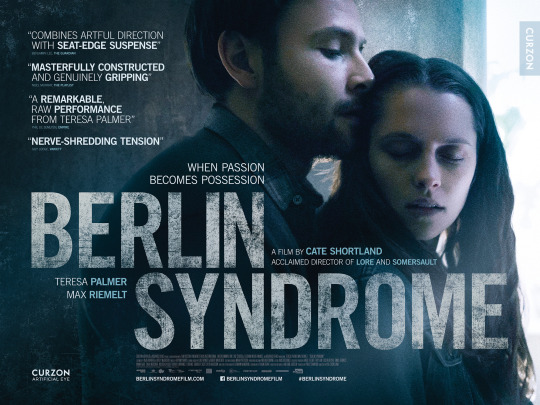
Let’s just end the debate here, once and for all, by admitting that being a human has never been an easy task. You can look at the history of men or towards the history of a living individual, you would see the clash of human consciousness against the primitive animalistic instinct all the time. Well, this movie has tried to capture a glimpse of such a topic, historically, as well as, psychologically.
This movie is based on the novel by Melanie Joosten, going by the same name. Here in this novel, she very carefully places every scene. She keeps on going back and forth the timeline to bring out the sharp contrast between the past and the present situation of Berlin and psyche of the characters as they develop through every turn of the page. Whereas in the movie, the writer, Shaun Grant, focuses on the development of the characters, romance, the intense situation that the characters are put in and have portrayed a hint of the historical context of Berlin that motivates the plot in the novel. Though I feel that going through the book would give the interested audience more depth and idea about the characters, the situation and how it relates to Berlin in a truer sense, however, the movie captures all the interesting parts in an intense manner for the audience to dive into a thrilling experience.
‘Life is a journey’, this is a quote that we have heard often but, have we heard that ‘Life is a lonesome journey’? I guess not. Philosophically, as well as, literally journeys/ traveling can be lonesome sometimes. So, do I sympathize with Clare’s (played by Teresa Palmer) decision to hook up with a handsome stranger in a strange city? Well somewhere yes. Are we all not looking for a partner in life to compensate for the loneliness within?
Her position of being a lonely traveler and over that a woman should have ideally made her more cautious. But, she does not show any sign of hesitation or reluctance to drink and hang out with strangers, even before she meets Andi. The initial scenes gave a feel that Clare came to Berlin to hunt for a man, who in return will hunt her down (cause apparently she has not guard). It is her own actions and decisions that lead to her captivity.
While I was watching the trailer, I had a hunch that the Clare would find freedom from her captivity. Even after that, I was motivated to watch the movie. First, It was because to confirm my doubt and second, to see the journey of how she frees herself. She seemed to be very loud while planning her escape. Though, this defines the purpose of an escape but, I thought her loud approach makes the audience be on the edge of the seat throughout the movie, giving this movie a thrilling touch.
I also think the movie did a fair job of bringing out the complex and the emotional aspect of the characters. When Andi (played by Max Riemelt) comes home after many days and reveals to Clare that his father has passed away. Clare then was running towards the open door but when she heard that she turns, consoles him and make love to him to ease him down. Now the question is, was her this act too good to be true? She knows that if she does not escape her end is definite. But, she still chooses to stay, attempts to get through him for one last time and tries to convince him to let her go. She was just looking for a little ray of hope from the psychological and emotional entrapment that she was feeling from within herself. Hope, which was nowhere to be found as Andi had no escape from his own past or psych. Clare, at the end really grows as a person, where she actually had the heart and intellect to forgive him and most importantly herself. She later concludes that there is no hope for Andi. She makes her escape, with the help of Franka Hummels (a student at Andi’s school. Who he was infatuated towards) but not irrationally, she locks him up in his apartment, where he had locked her so that he can’t captivate anyone else.
Andi, on the other hand, is a man who is bound by his psyche. He does not know how to love without possessing. He shares no relation with his mother and idealizes for a perfect woman who would love him and take care of him. He is never in love with the women he ever made love to. He would project the ideal women onto his chosen woman and captivate her. So basically there is no way to get through him because he is not addressing you at all. He is addressing to the women he believes she is. (This part reminded me of my initial days of writing an article, there was an interesting topic I had to write about “10 way to know that you are not in a real relationship”. An example of this movie would have been a perfect, lol).
“One can’t clap with a single hand”. I feel that both the characters didn’t have a healthy relation with sex and its powers. Andi is not alone to be blamed but Clare was too. She states “we had sex. People say all sorts of things. That necessary doesn’t mean anything”. So, does she really thinks that she can come to a strange land, be with a strange person and use that person sexually and there would be no consequences? She didn’t even intend to know Andie’s intentions and motives. She seems a bit self-involved as well. During the first intimate scene, Andi clearly states that “No one can hear you here”. She gets so overthrown by lust that she ignore the warning signs. Well, the audience here experiences a dilemma, as to how much they try to sympathize with Clare and her loneliness, they never seem to catch up with her. She always seemed to have wanted to bring this situation upon herself. Well, some need extreme scenarios in life to learn, but of course, life is not a movie and one can’t always expect to be as lucky as Clare and escape. Andi, on the other hand, tries to control every scenario and every little move of Clare. He not only wanted Clare to be his company and share his burden of loneliness but also wanted her to do exactly what he says. He would tie her to the bed. He would buy her a pink color undergarment cause he wants to see her in them. And, when Clare does a seductive dance wearing it, he wants her to stop that, as her dance seemed mocking the ideal image that he projects on her.
Both the characters from the start were psychologically out of balance. Clare demonstrated this externally and Andi internally. The situation that they end up in is reversed. Where Clare is held inside an apartment and Andi gets to go outside and deal with his issue of lust, infatuation, attraction and his father’s death. But, Clare gets to escape at the end because she grows out of this scenario and the relation psychologically. Her escape was merely a reflection of her growth. On the other hand, Andi gets locked in the cage externally that he has created for himself psychologically by not healing himself. And at the end, he was seen to sit on the torture chair, “complicating” Oh! Sorry, I meant ‘contemplating’.
This movie also reminded me of a Korean movie called ‘Missing (2009)’. It is because the storyline was pretty similar but of course, the context and the background of the characters were different. So the only difference between this movie and the Korean one is that the captive really dies. So, when Andi towards the end of the movie was searching for a new vessel to project his ideal women, my heart started panting. It was because, in the Korean movie, the killer finds a new victim (which was the present victim’s sister) and kills off his present victim to make space for his new victim. I felt this movie was a healing experience after watching the Korean one.
Cate Shortland the director of the movie said, “She (Clare) is an extreme version of many of us: rejecting her childhood life and then coming to see the beauty of it. She goes through various stages in the film: fighting to get out, living in fear, and then coming to acceptance. But this acceptance shifts suddenly, when death is shoved in her path. She becomes a fighter in the end.” I completely agree with this aspect. Many of the experiences that Clare faced in her unbridled relationship with Andi, is sometimes faced in a married relationship as well. The stern customs and laws that are enforced over married relationships in varied societies have the power to make people feel trapped in loveless or abusive relations, where escape become the only option. I would extend this point by referring to the movie ‘Provoked’ (2006).
Teresa Palmer did an amazing work in interpreting the character of Clare and bring out her emotional and mental complexities. Whereas, Max Riemelt’s acting was chilling and scary, well that proves the whole point. The way he looked at Clare and yet his vision went pass through her was an amazing touch to the character.
Though, looking at the movie initially one might feel that, ‘this movie is typical and boring’, but because of the allusions to the political context, the interesting shots and intense acting the movie is a worth a watch. I think that at the end Clare escaped her Berlin Syndrome, but Andi still has not. So, there are still people like Andi lurking on some of the crossroads on the street. So, if you find yourself standing on a crossroad with him, it is totally up to you, do you let your primeval instinct trap you, and you cross the road with him or you choose to transcend and go the other way?
3 notes
·
View notes
Text
Tales of Berseria Analysis - Rokuro’s and Eleanor’s character arcs - Obsession and Conflict.
One down…five to go.
Rokuro is another interesting fellow…First at all he is a Daemon, born of the resentment against his older brother, Shigure, and he is mostly motivated for the genuine desire of surpass his brother (and for the thrill of a good battle) and kill him…ok…but he is also a genuine nice guy, honorable, diligent, easy going, caring and just an enjoyable guy to be around…but again, he is also amoral murderer that would attack even his own teammates if they would intervene in a fight between he and his “pray”.
Rokuro is a rather complex figure to be honest, because the game never takes a side about him; Shigure is actually fine with Rokuro’s motivations and in fact he wishes for Rokuro to get stronger for the purpose of just get a better fight, Eleanor (and in a lesser extend Phi) have trouble even understanding how he can be so uncaring about wanted to kill his own brother, Eizen understand and respect him because he’s forging his own path but nevertheless we can argue that Eizen cannot understand him because his relationship with Edna and Magilou and Velvet don’s seem to care to much about the issue and even at the end of his arc the game still doesn’t have a clear answer.
Rokuro kills Shigure, yes, but he and the party did it in an honorable combat, Shigure and Rokuro shares drink before the fight and both express a genuine affection for the other before, in the middle and after the fight. Shigure is actually satisfy with the combat and die with a big smile in his face with his only concern been that the party forgives his Malak partner and even the mere act of the two brothers fighting to the death ended been justify for the own narrative, been that the party need souls free of malevolence to resurrect the elemental Empyreans…and later at the end of the game we realize that he can’t be purified by Phi’s Silver Flame because “his sin are fixed too deep into him”
If Velvet is the blindness and consumerism of emotions, Rokuro is the obsession in it, a tragic tale of the fall of one man in the purse of his goal, how low he needs to fall to reach that goal and the endless cycle of fight and bloodshed that waits for him meanwhile he search for his next big opponent…or maybe the romanticize tale of a wandering swordsman trying to be the best of whatever he can be-
It’s an ambiguous story, that’s the point…and it gets even more ambiguous when we add Shigure to the picture.
Shigure is similar to Rokuro in many ways, both are swordsmen, both are driven by the genuine wish of self-improvement, both crave for good battles and both are affable and easy going guys. The key differences are that Shigure works for the Abbey as one of the highest ranks and he has a soul free of all Malevolence…ok that is, in fact, really interesting.
Shigure works for the Abbey but lacks any class of attachment to Artorius and Melchior ideas; he is there just to fight Daemons (and to fight with the Armatized Artorius, and in that regard if the party would have fall in any moment of the story, it would be him the one to face Artorius and Innominat in the final Dungeon, and for what we see about him, he would have pretty good chances), he seeks the thrill of good fights but he doesn’t believe in unnecessary bloodshed, he is friendly and jovial but the apathy towards the Abbey ultimate goal shows him as completely selfish person who doesn’t care to much of what happens if he can get his fights against Armatized Artorius, he is entirely devote to his emotions, in contrast with everyone else in the Abbey, and yet he is a soul free of Malevolence, he is the bird that flies the highest, just for the pure wonder of how high he could get. Maybe a fool? Yes, but an admirable person? Undeniable (And if we take in account what we know about Human Rokuro and Daemon Rokuro, End of the game/Daemon Rokuro is, probably, the closest to this that Human Rokuro ever was)…In a vacuum Shigure and Rokuro would be far less interesting, still funny and enjoyable but with far less depth, but as foils to each other and in the context of this story with no clear answers, both are just fucking amazing.
Honorable swordsmen? Amoral murderers? A tragedy or a romance? I don’t know and, maybe, that‘s the point.
There’s the second… and I’m just getting started.
Eleanor is really good, she is fitting and necessary; she has a nice character arc, a well-grounded and relatable conflict, a really enjoyable personality, she is essential to tell the story that Berseria wants to tell…and is my least favorite of the main characters.
The main problem here is that her character arc, although well executed and overall good, just pale in compassion with her pears.
She starts as an exorcist of the Abbey, praying and living by their rules without a question, then, and after a few encounters with the party, she is forced to join them and she slowly start to change, after knowing that there is more to these group of outlaws that meets the eye and seeing the extremes of which the Abbey is prepared to go for the sake of a world of peace. It’s a conflicted journey with lot of unanswered questions and dilemmas that will force Eleanor to develop her own posture about the current events and eventually become this healthy middle-ground for the two conflicted ideas who will guide Berseria’s word in the form of the Shepard. (She shines especially during the midgame, in the hunt for the Therions and in her relationship with Kamoana and Medissa when her conflict and her doubts are in her peek)
She is vital to the narrative, through her we can understand how the majority of the exorcists of the Abbey thinks about the general situation, she is another important element to know the main party (A little more about this later), she is a window to Velvet’s final thoughts during the last hours of the game and, again, she is this final point of reconciliation between emotion and reason.
She is the best representation of the inner-conflict of both ideologies in the people, how they collide? How they coexist? How you may fall in their extremes/negatives? How you live with the contradictions? Etc. And is great, even more than great, but in a story which goes to so many places and explores so many ideas, she just felt a little too short.
No bad, quite the opposite, just not as good as the rest.
Part 1: Tales Series Retrospective
Part 2: The Elements of a Wonderfull Game
Part 3: Velvet’s character arc - Blindness and toxicity
Part 5: Laphicet (Phi)’s and Eizen’s character arcs - Coexistence and Romanticism.
Part 6: Magilou’s character arc - Contradictions.
#tales of berseria#magilou#velvet crowe#rokurou rangetsu#eleanor hume#eizen#laphicet#tales of#tales of series#tales series
23 notes
·
View notes